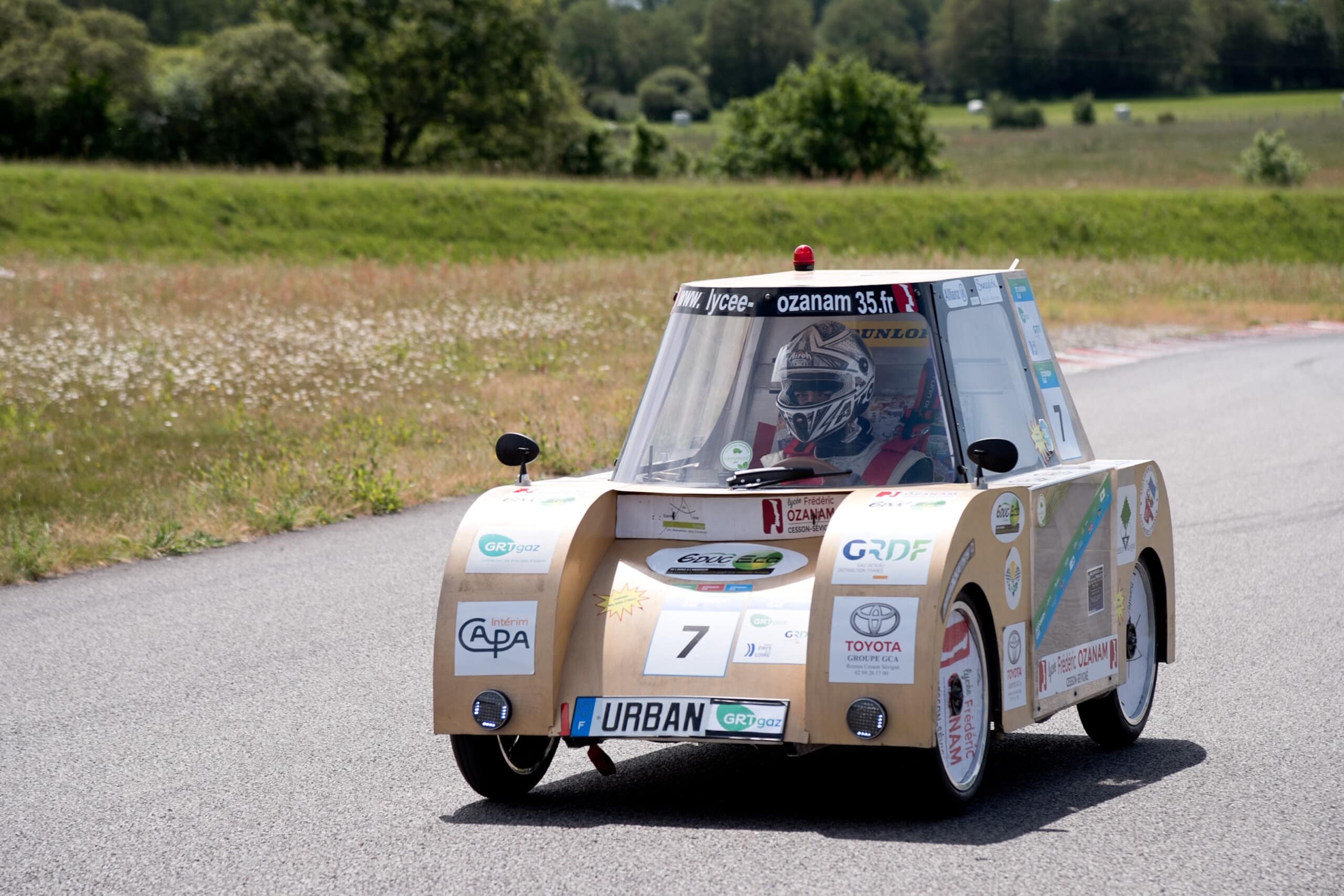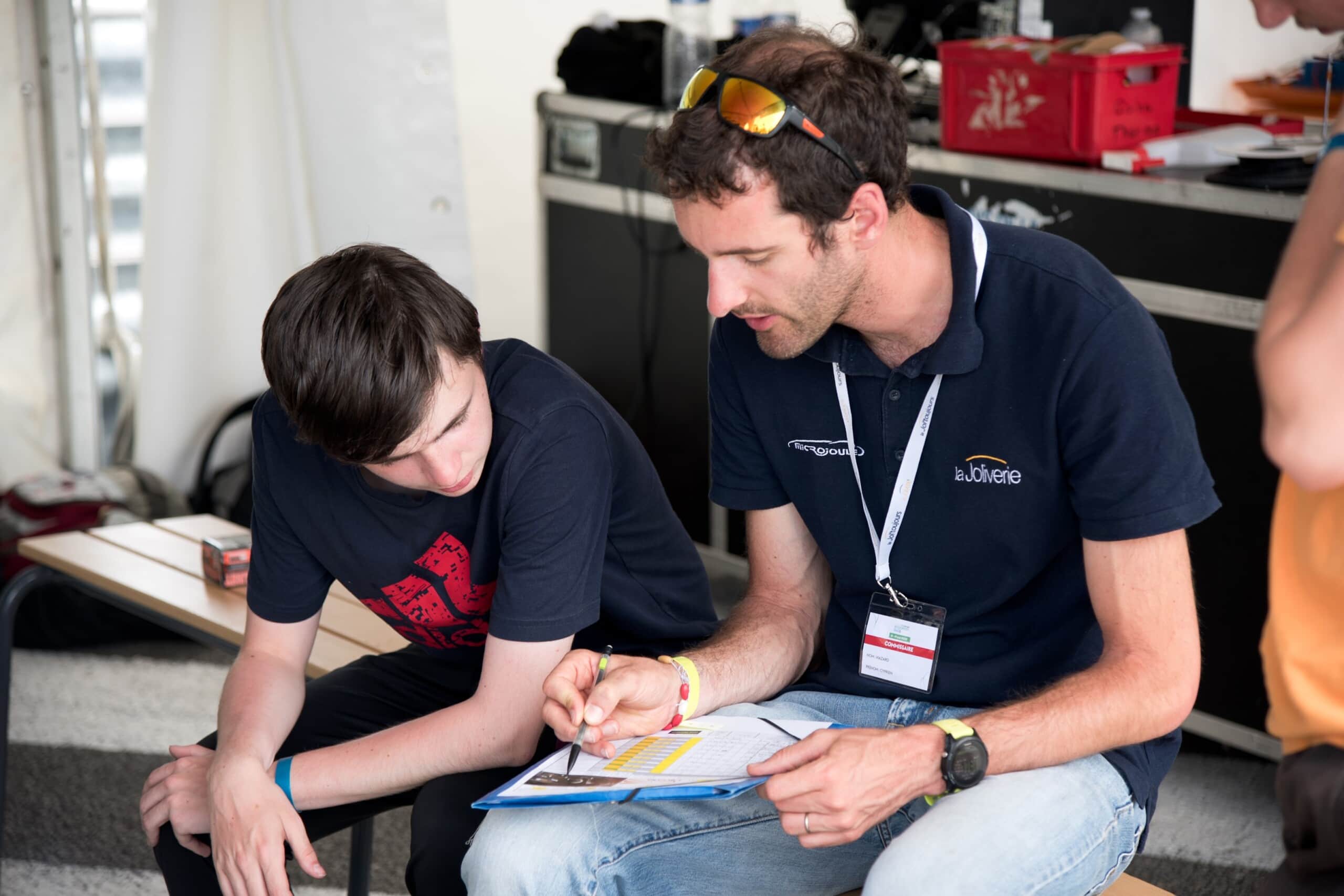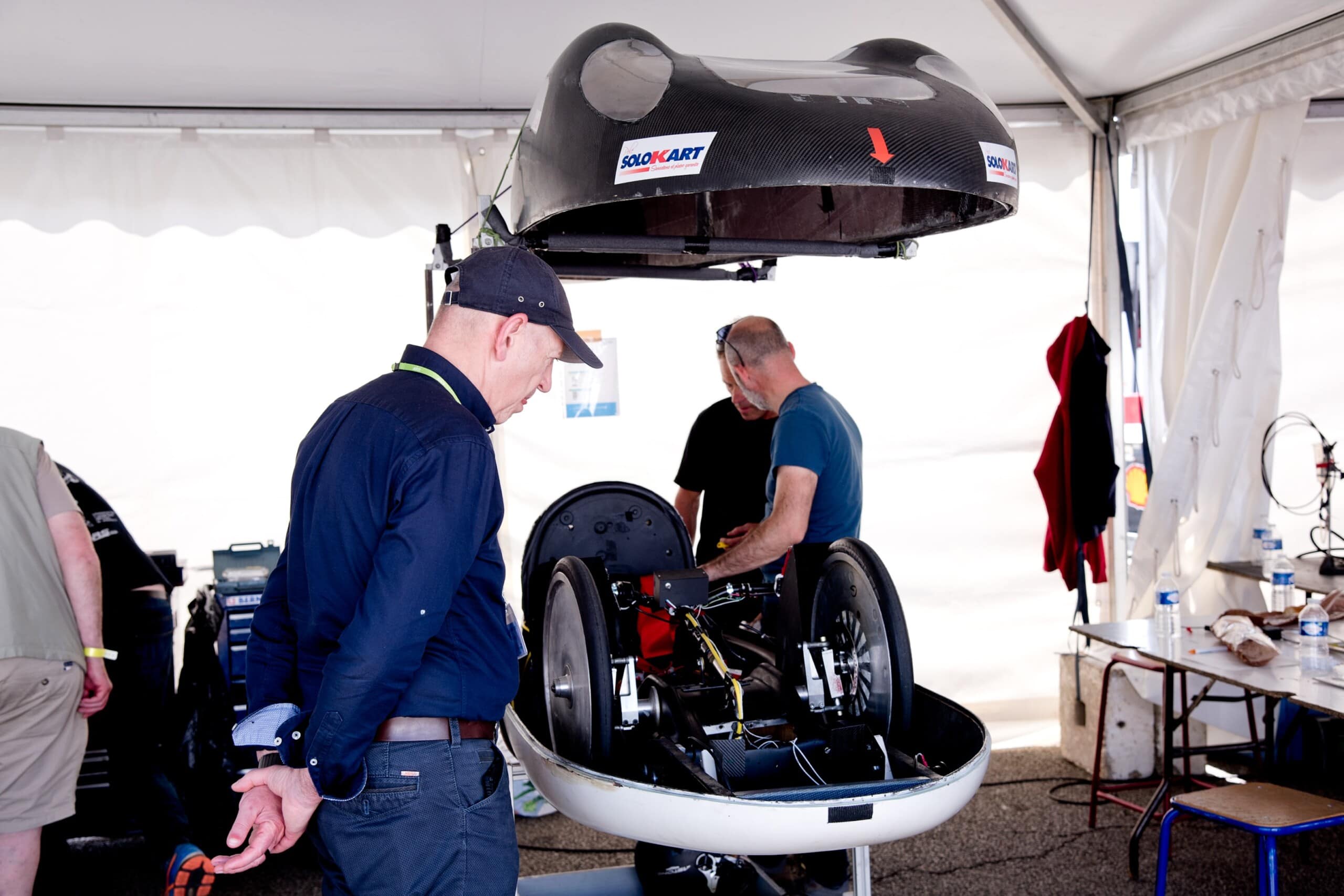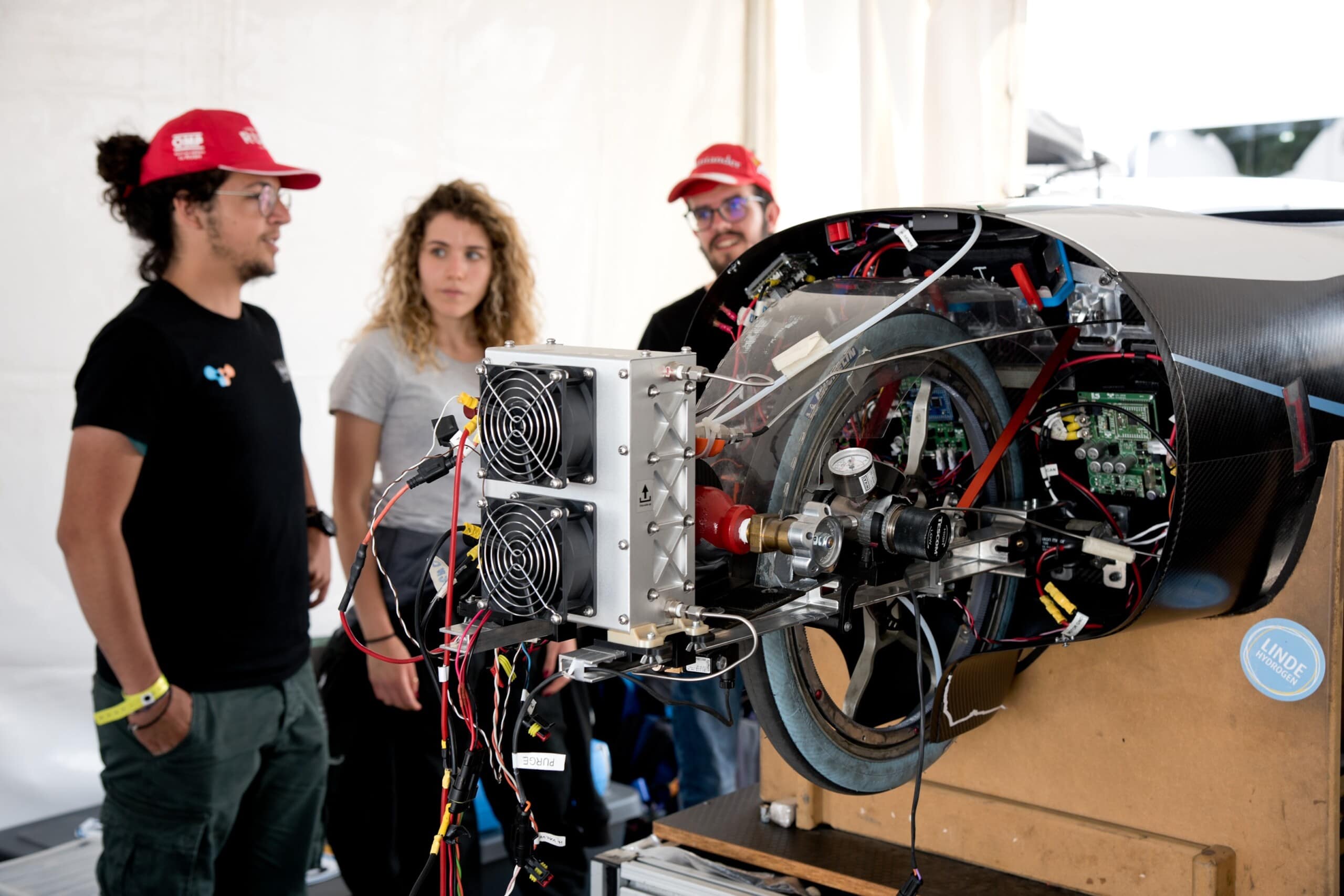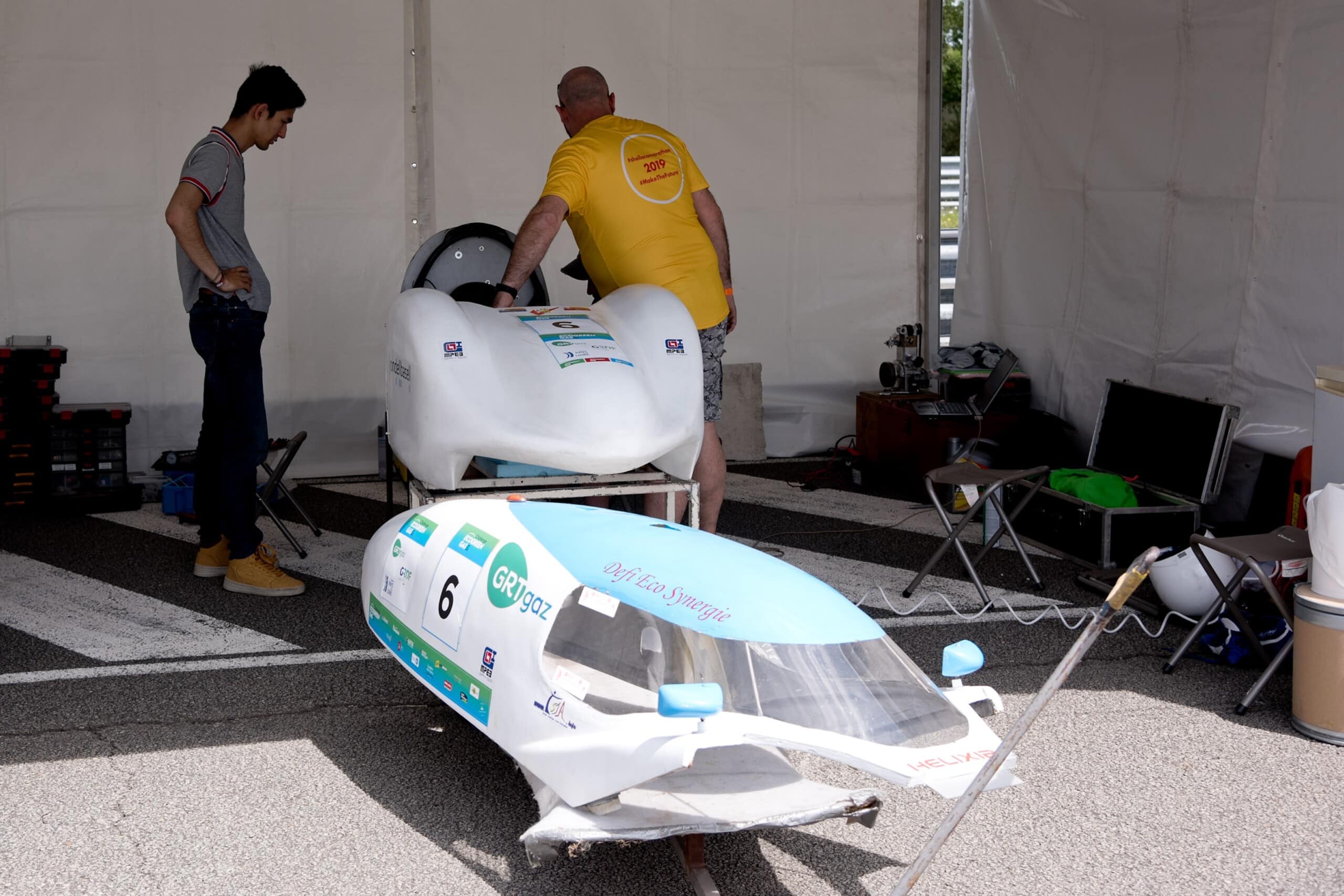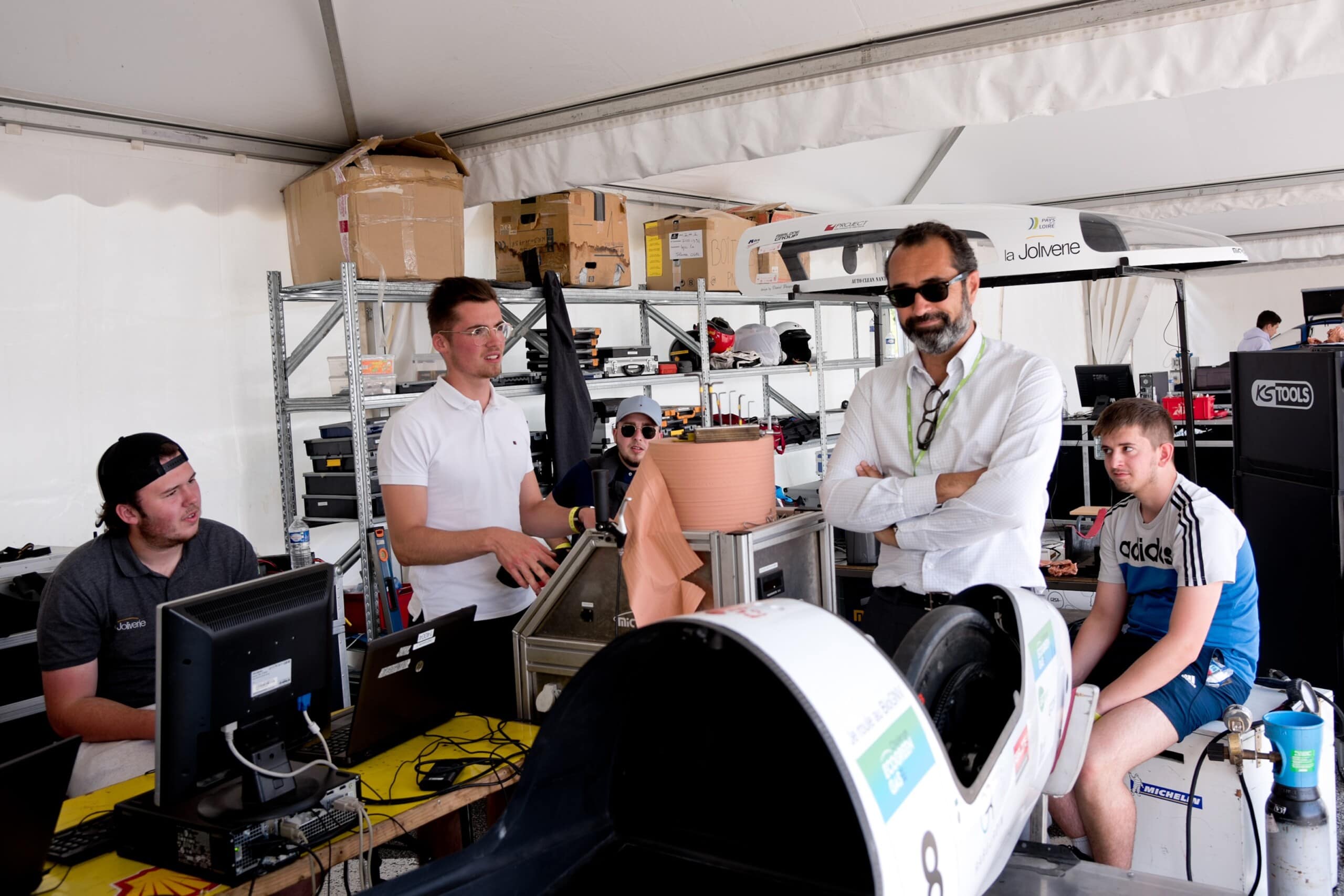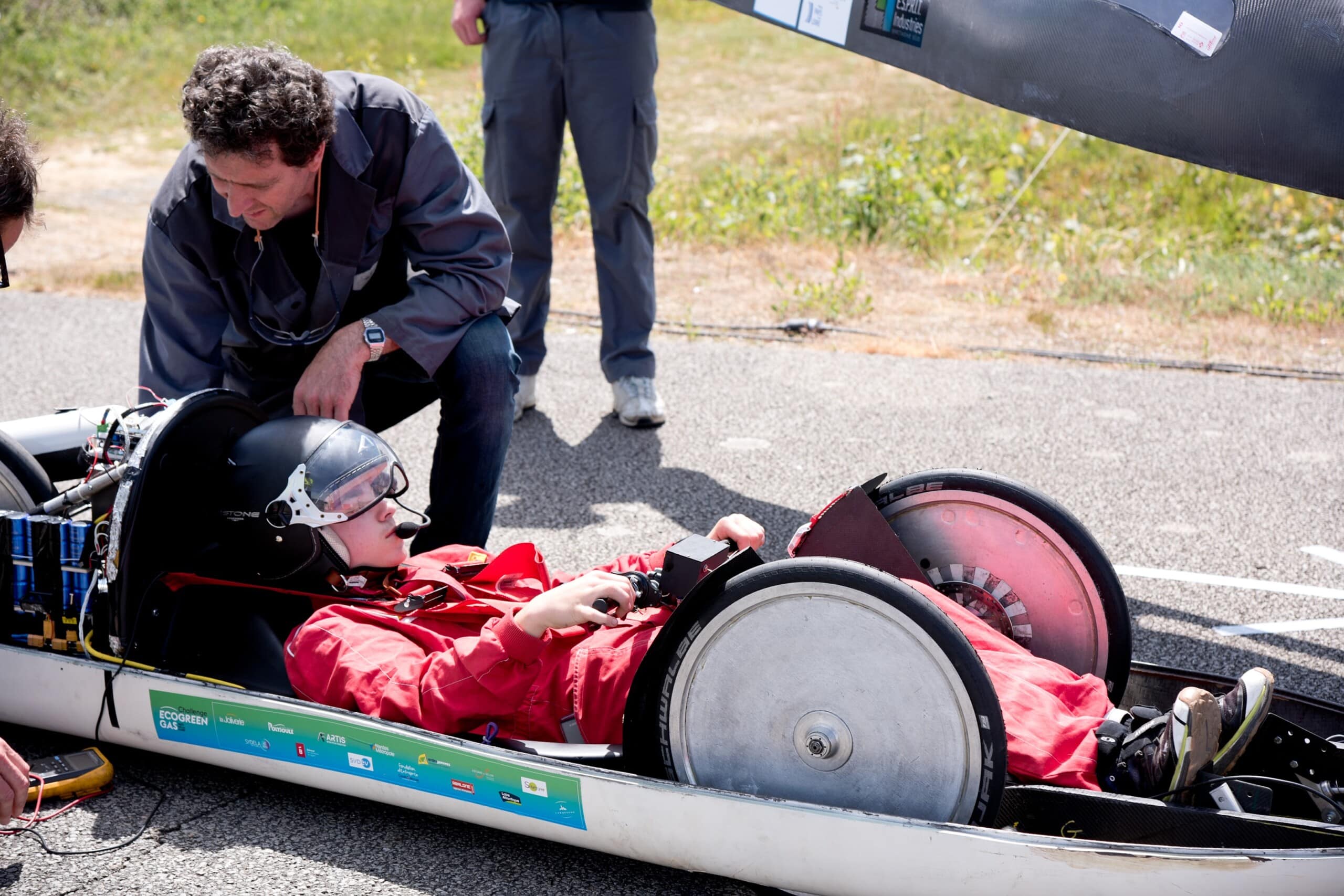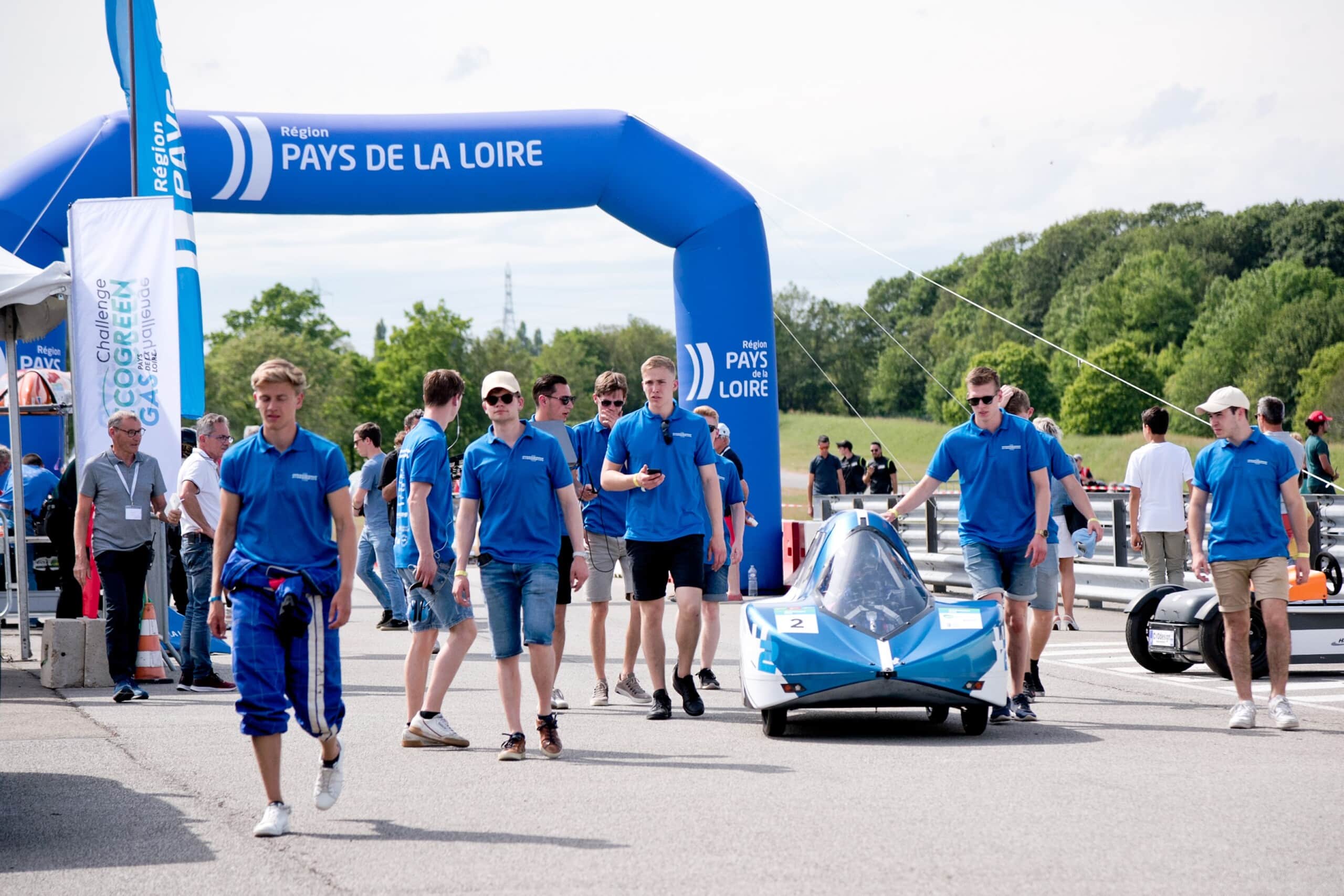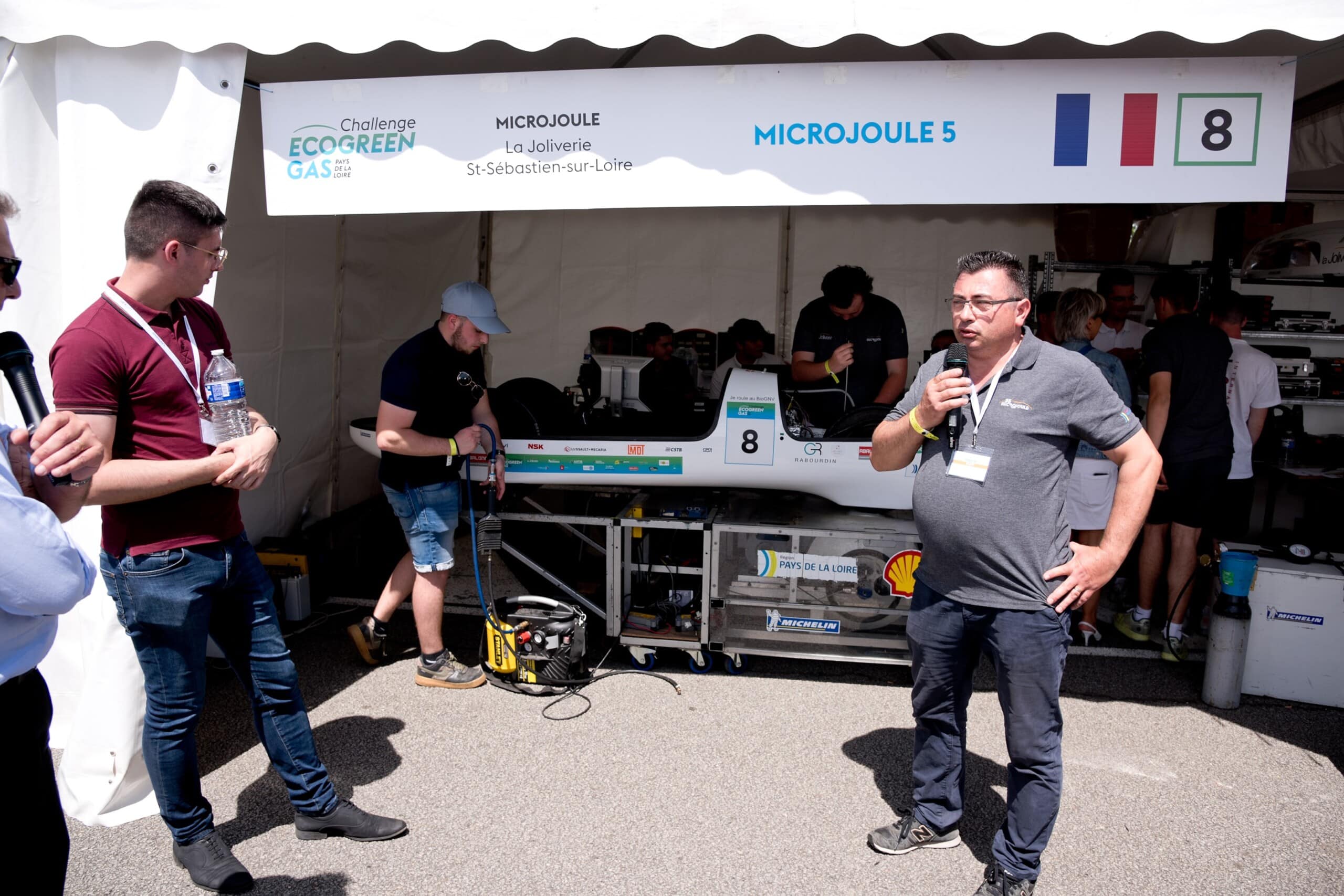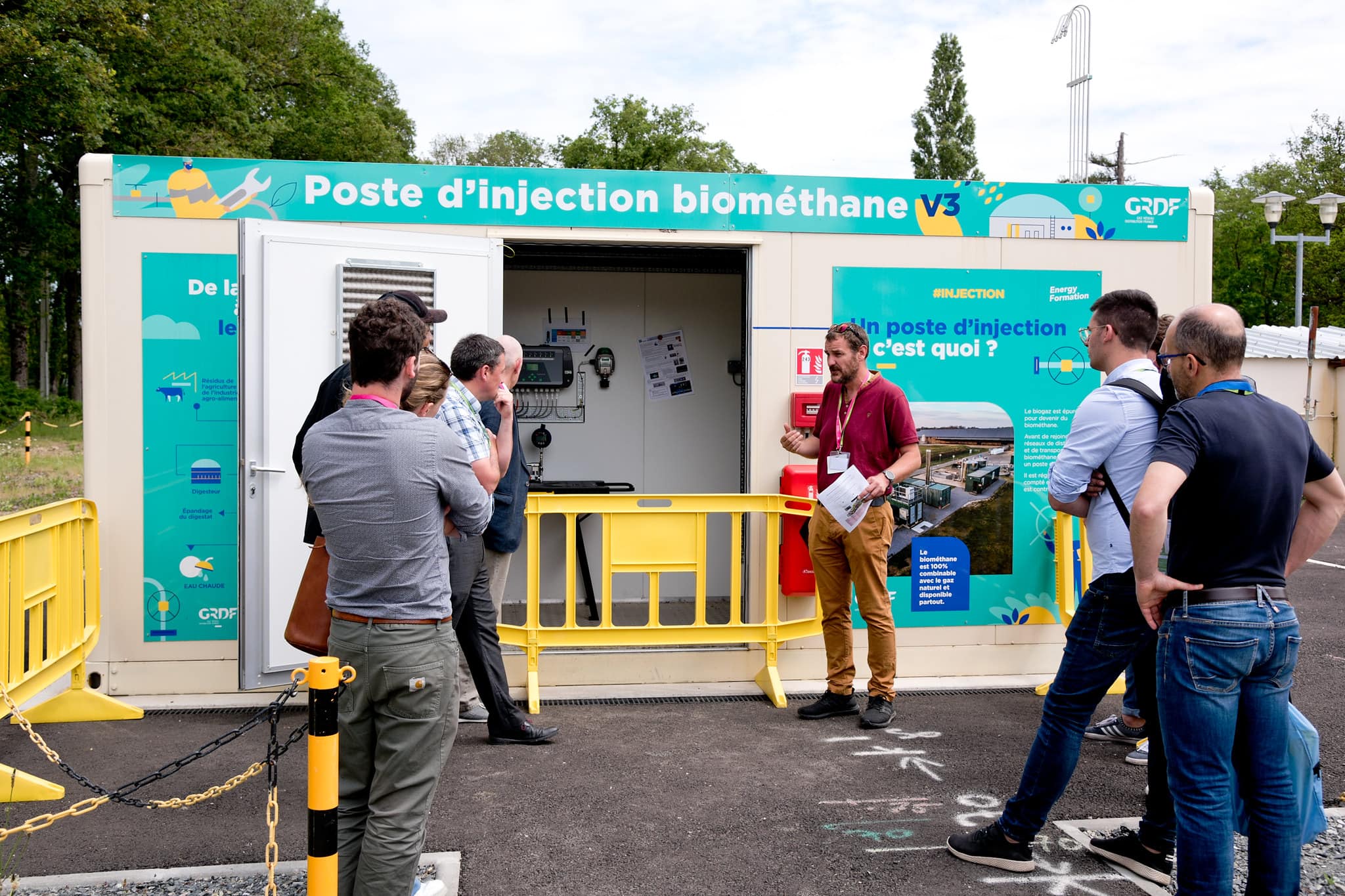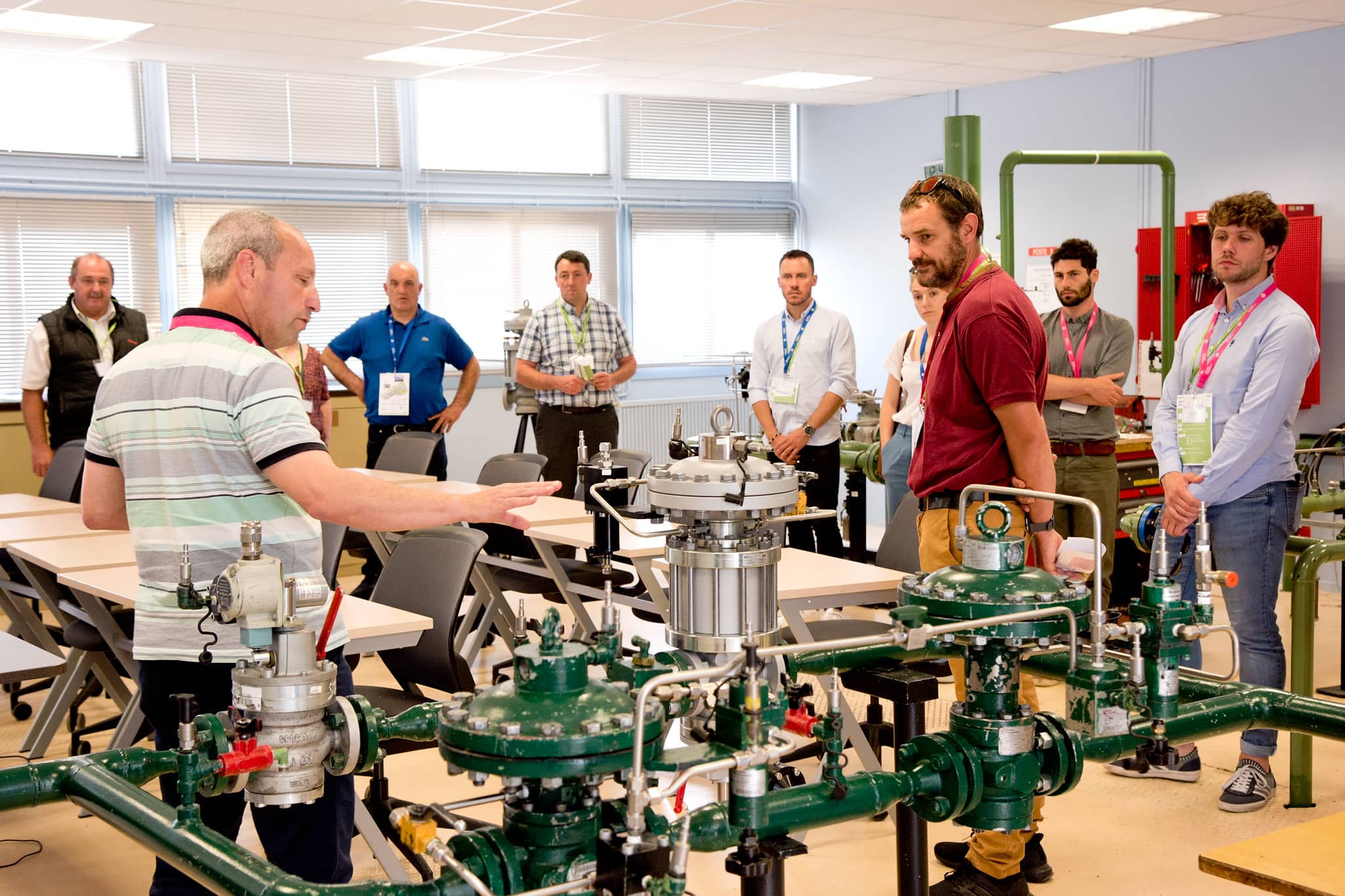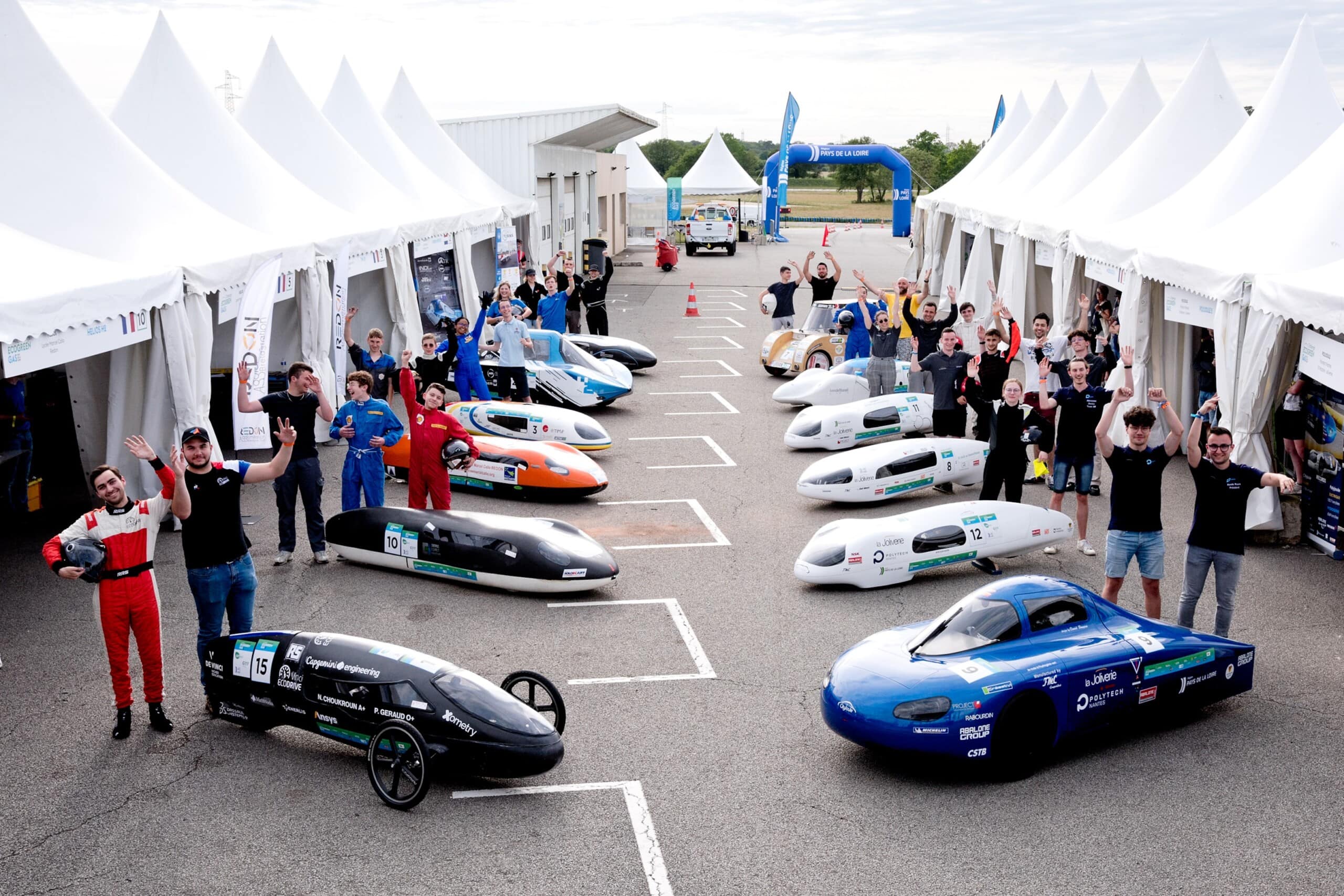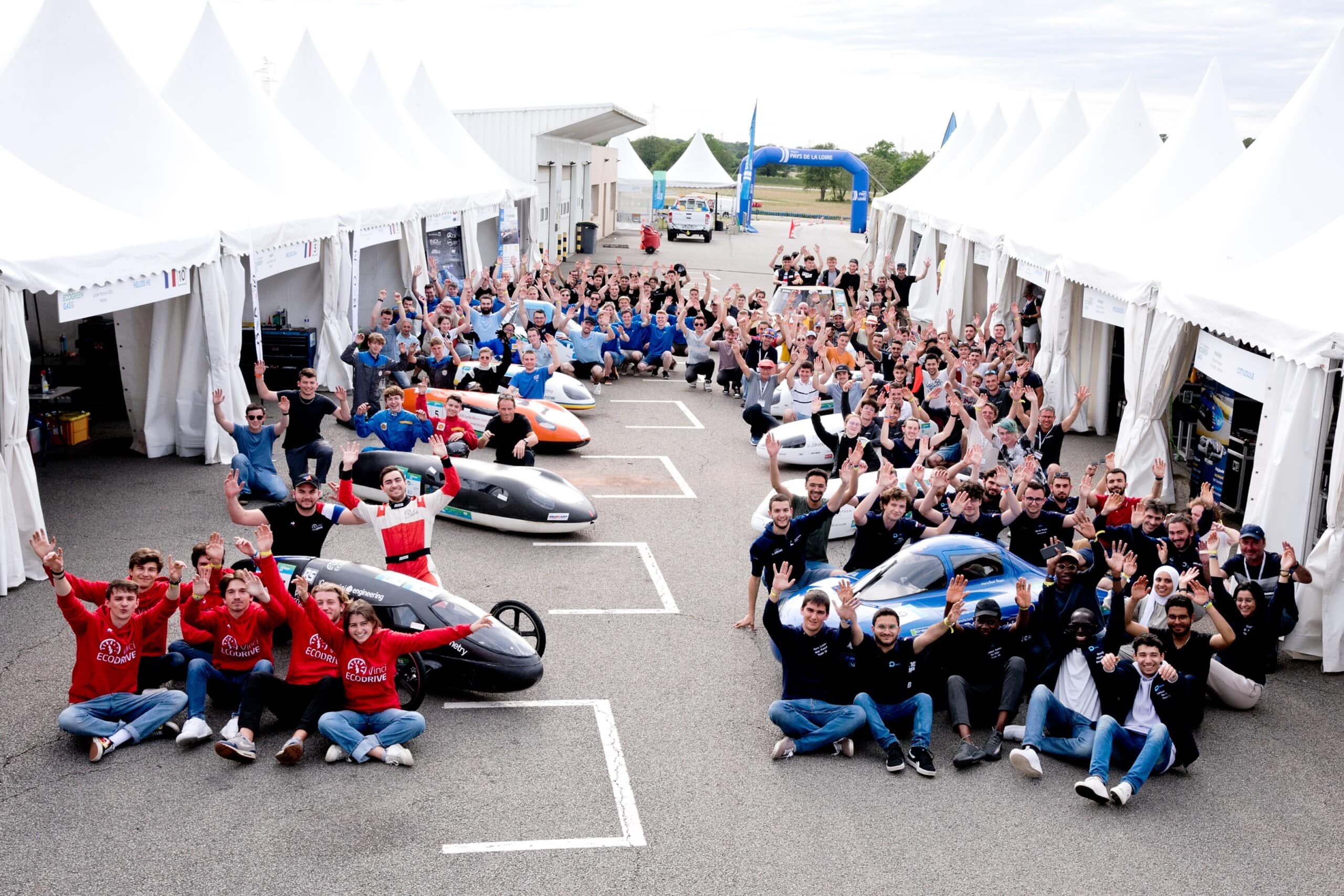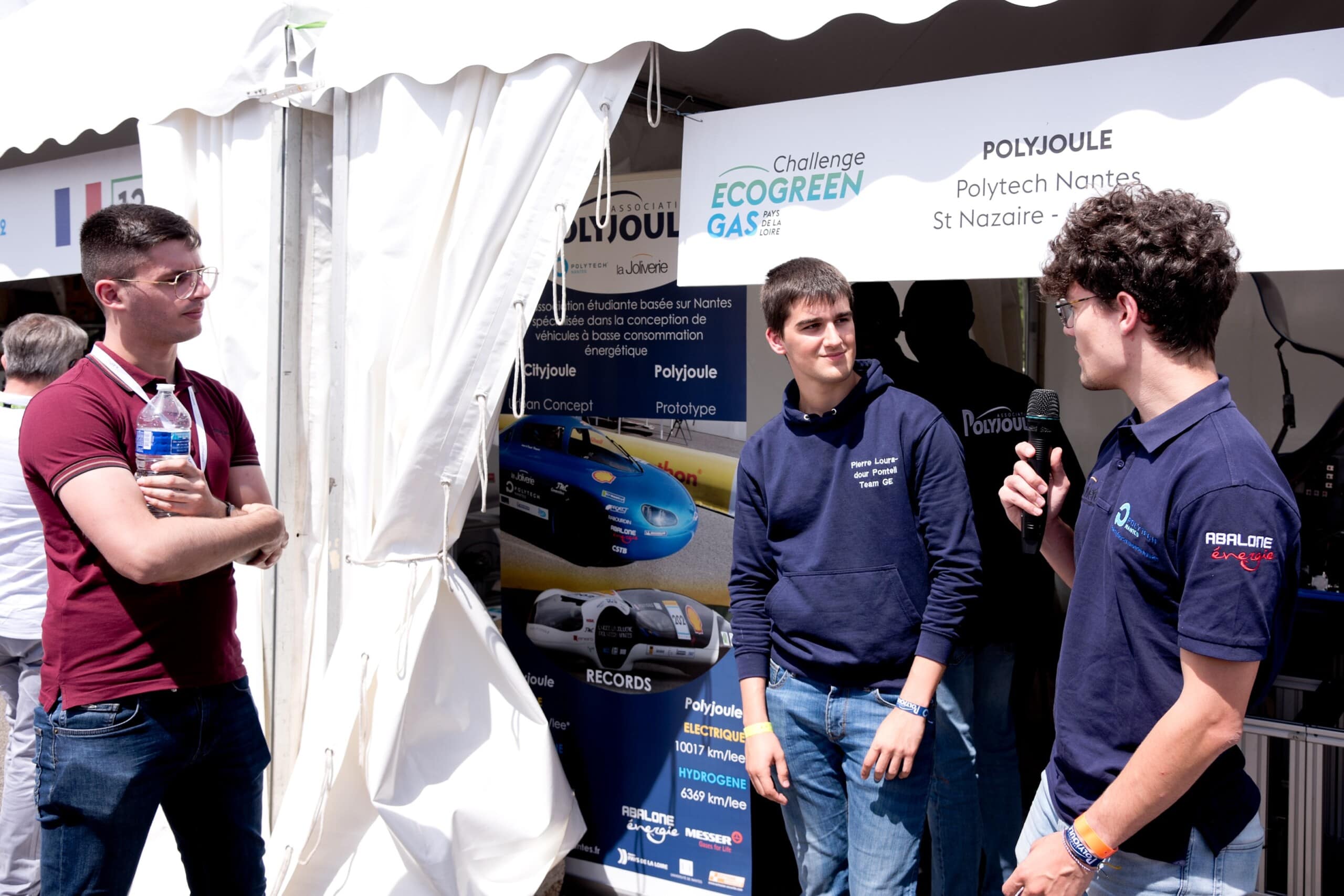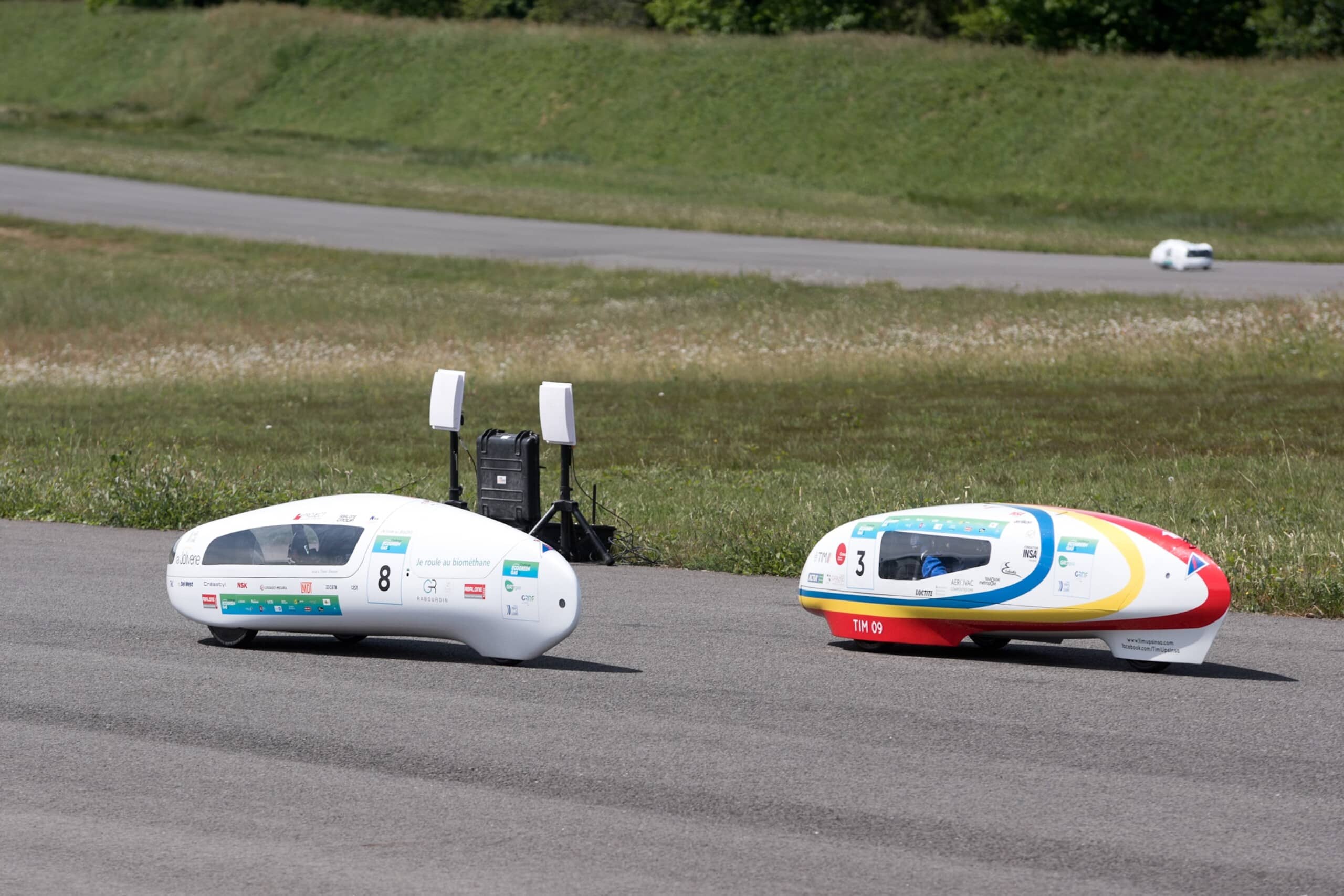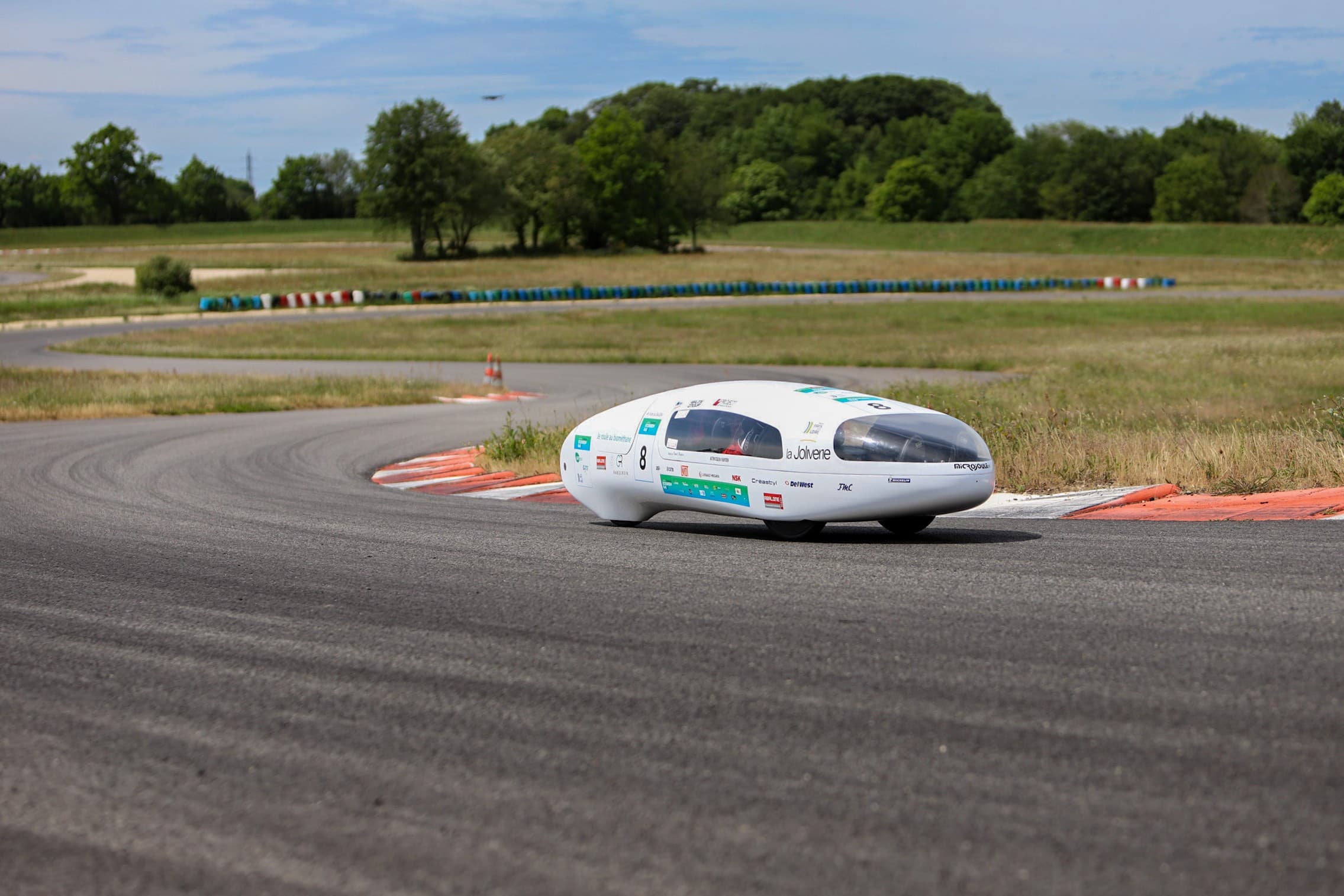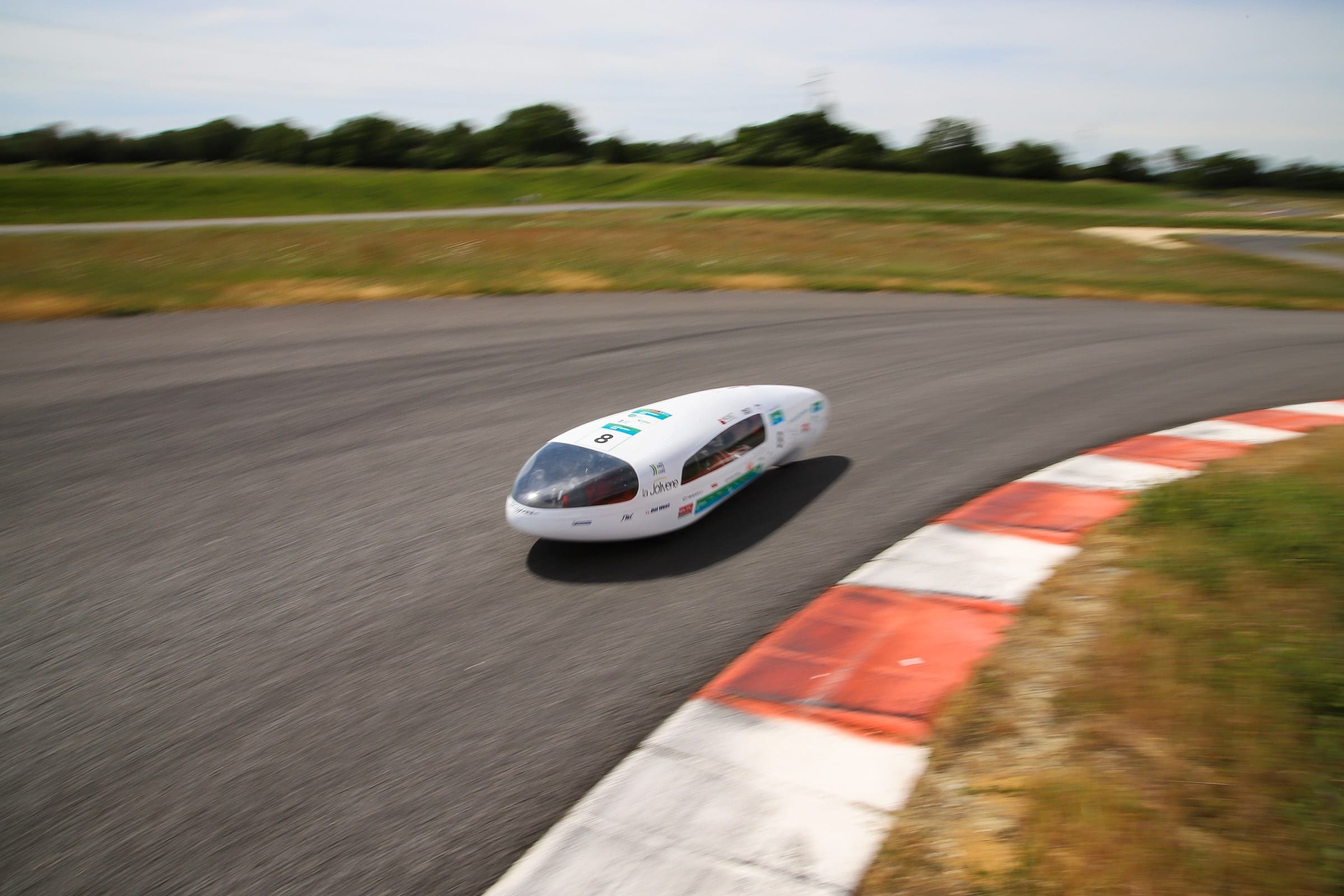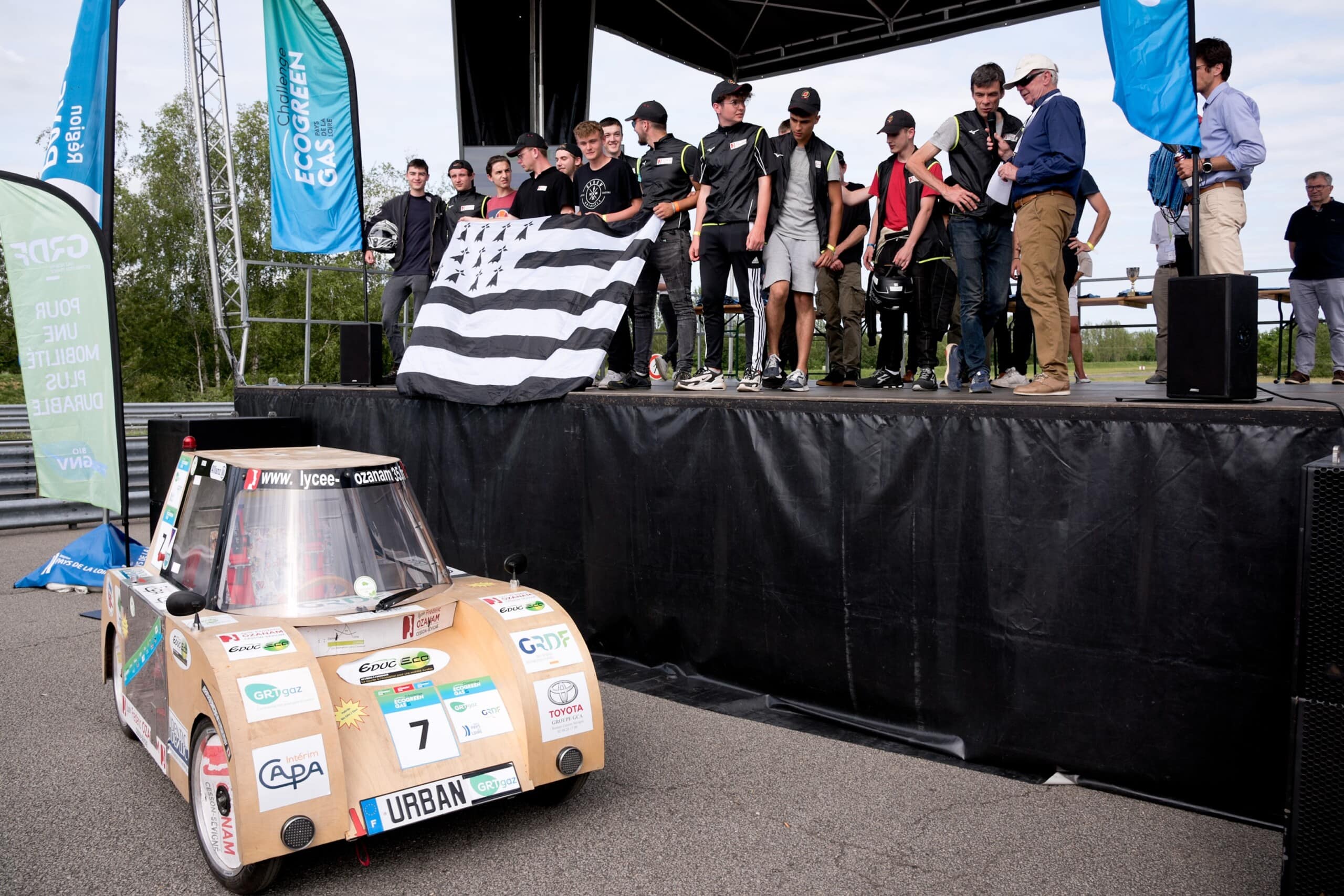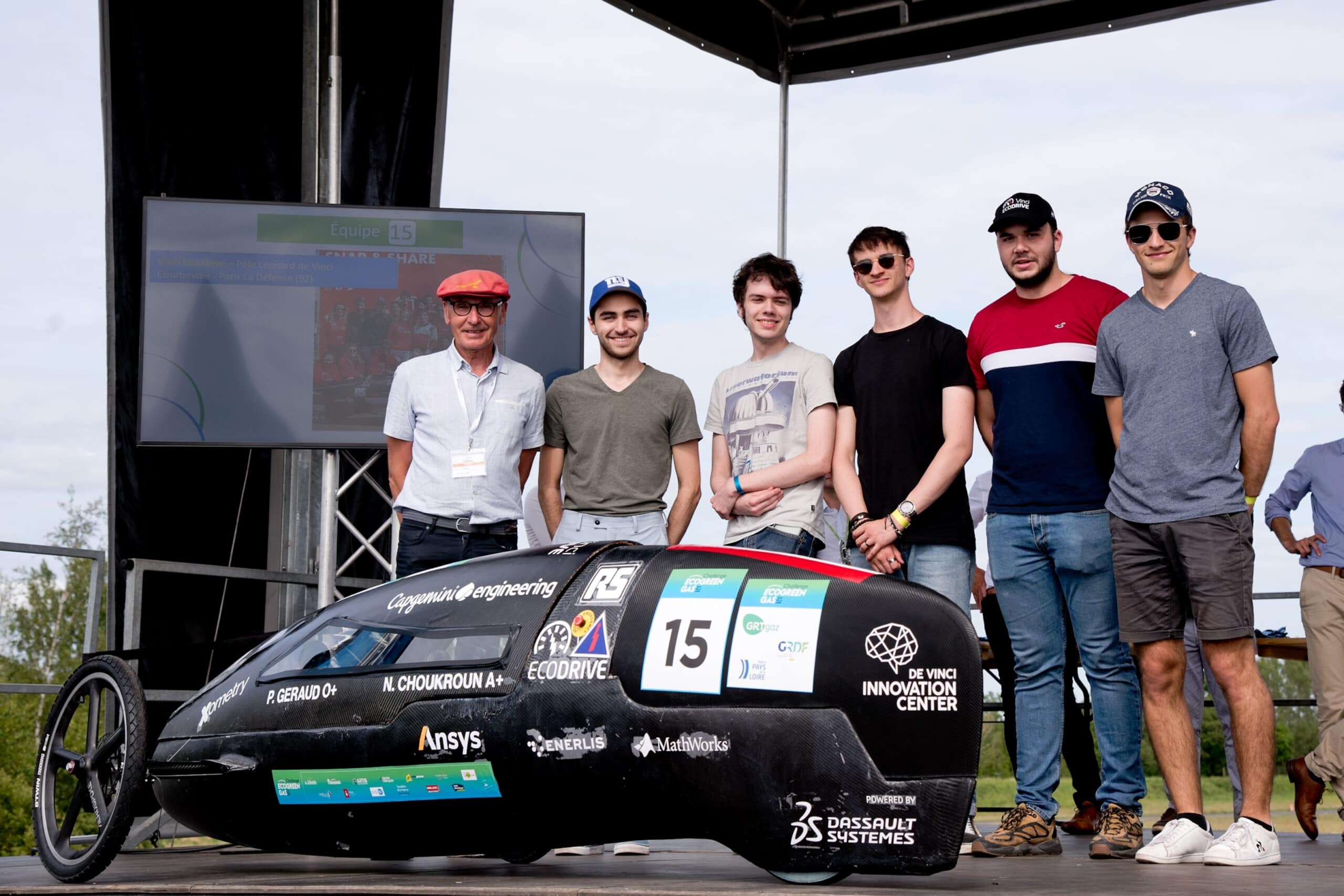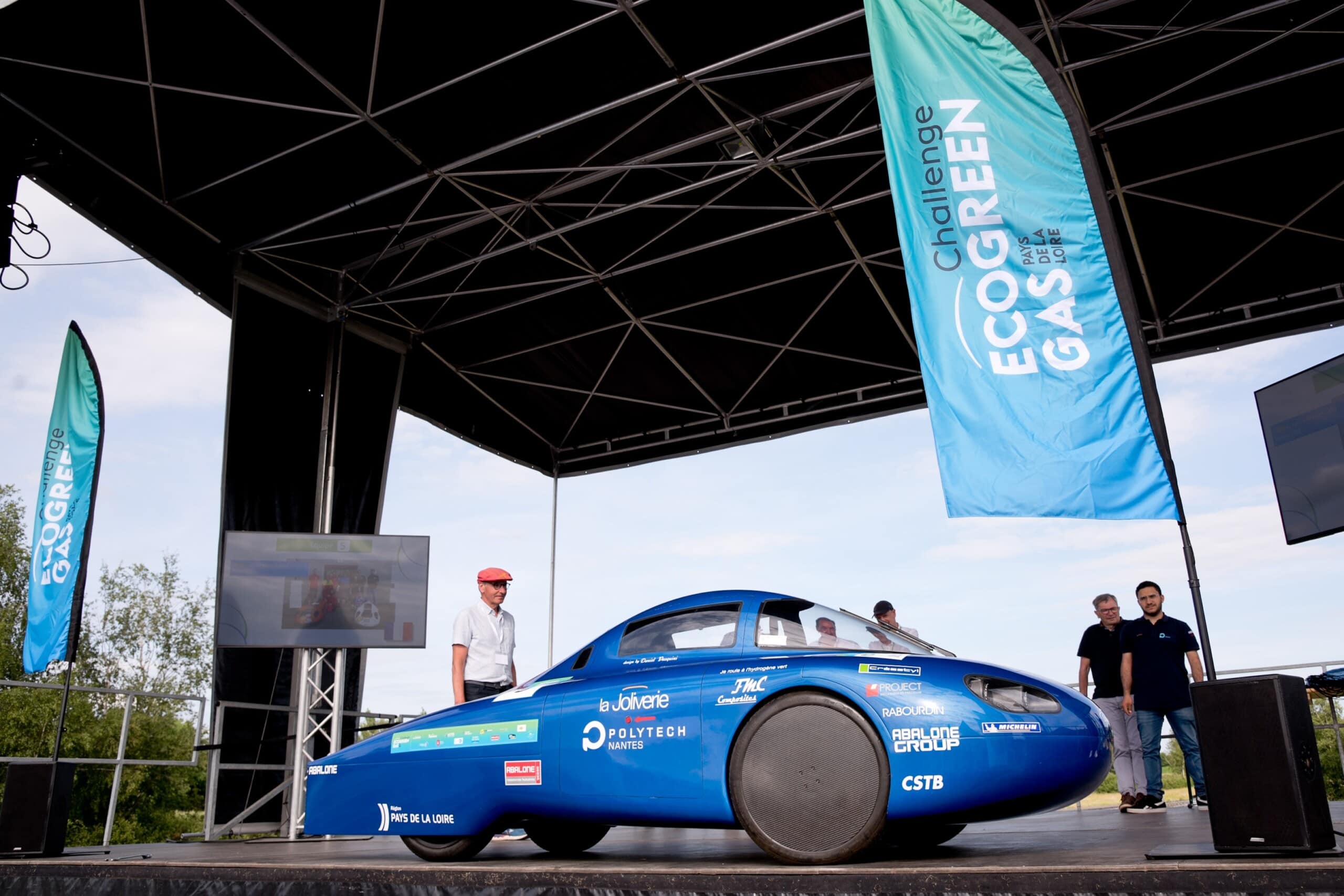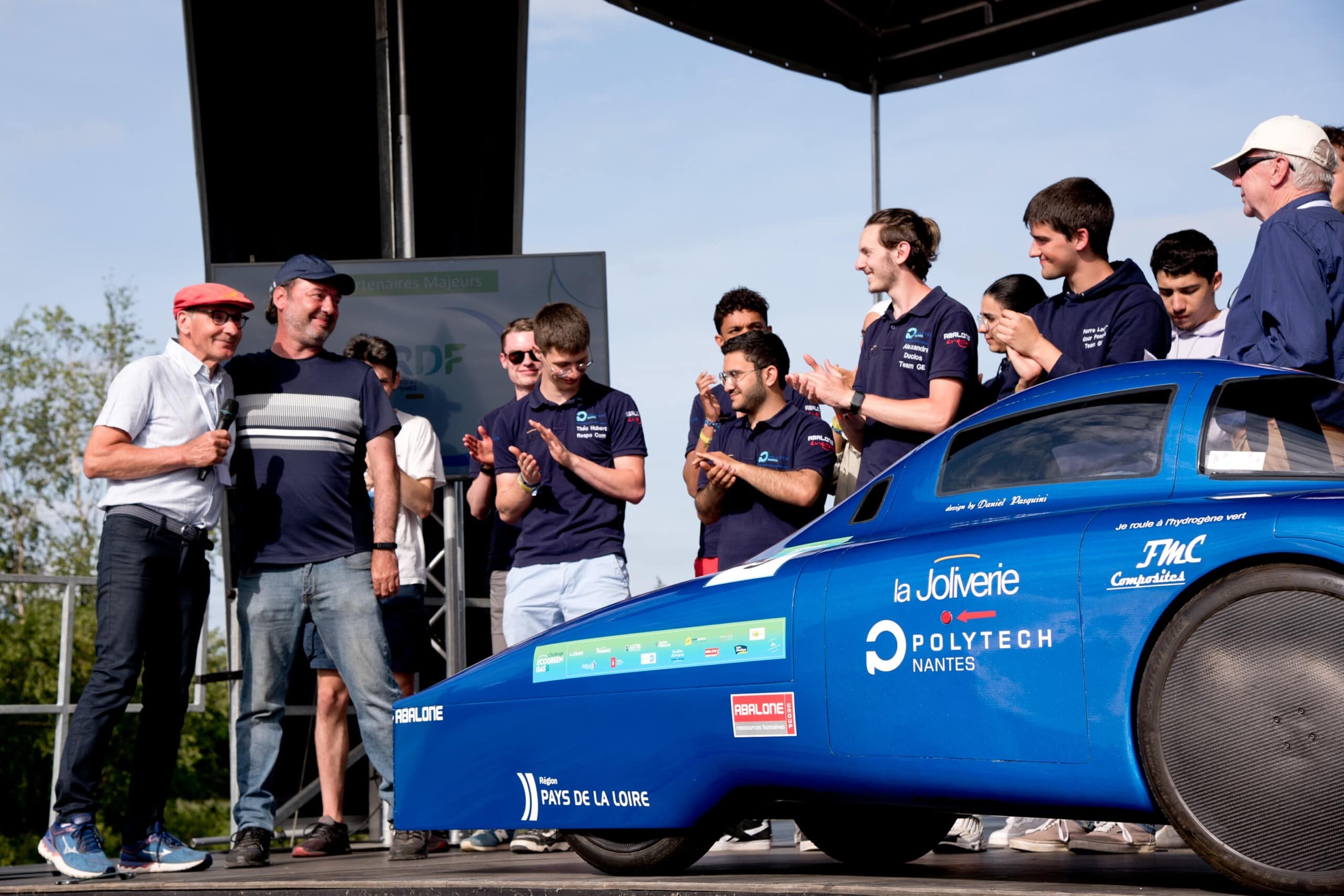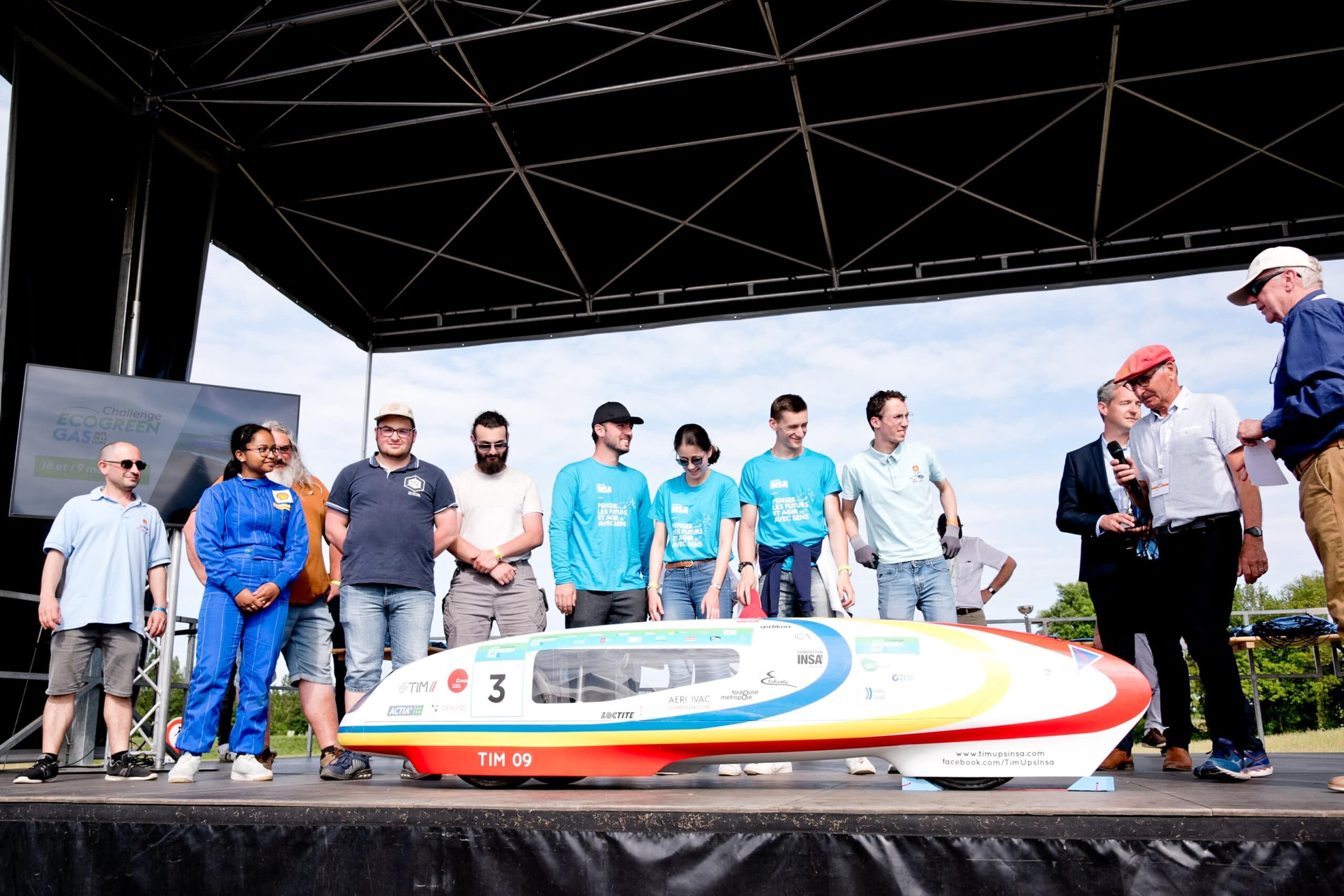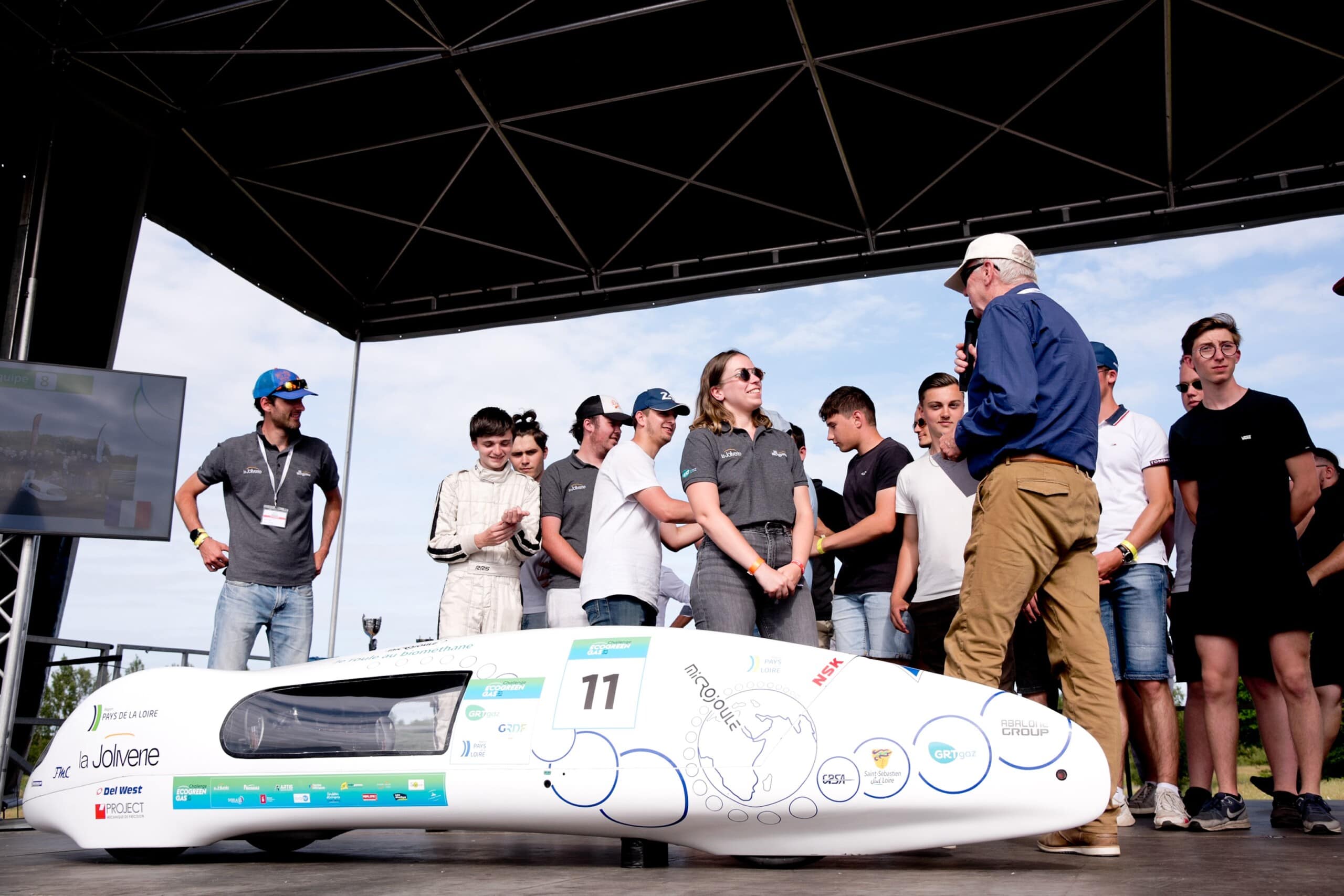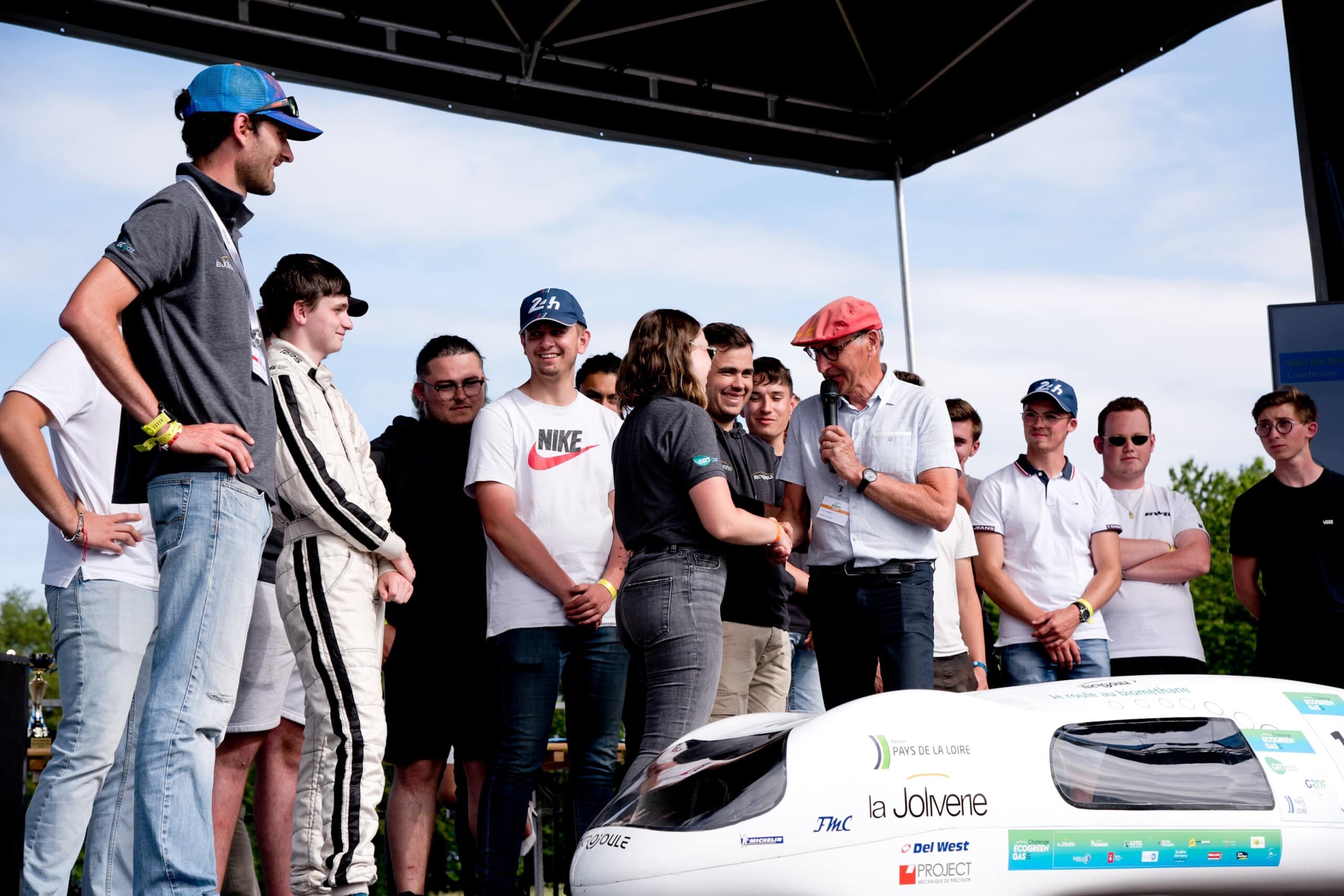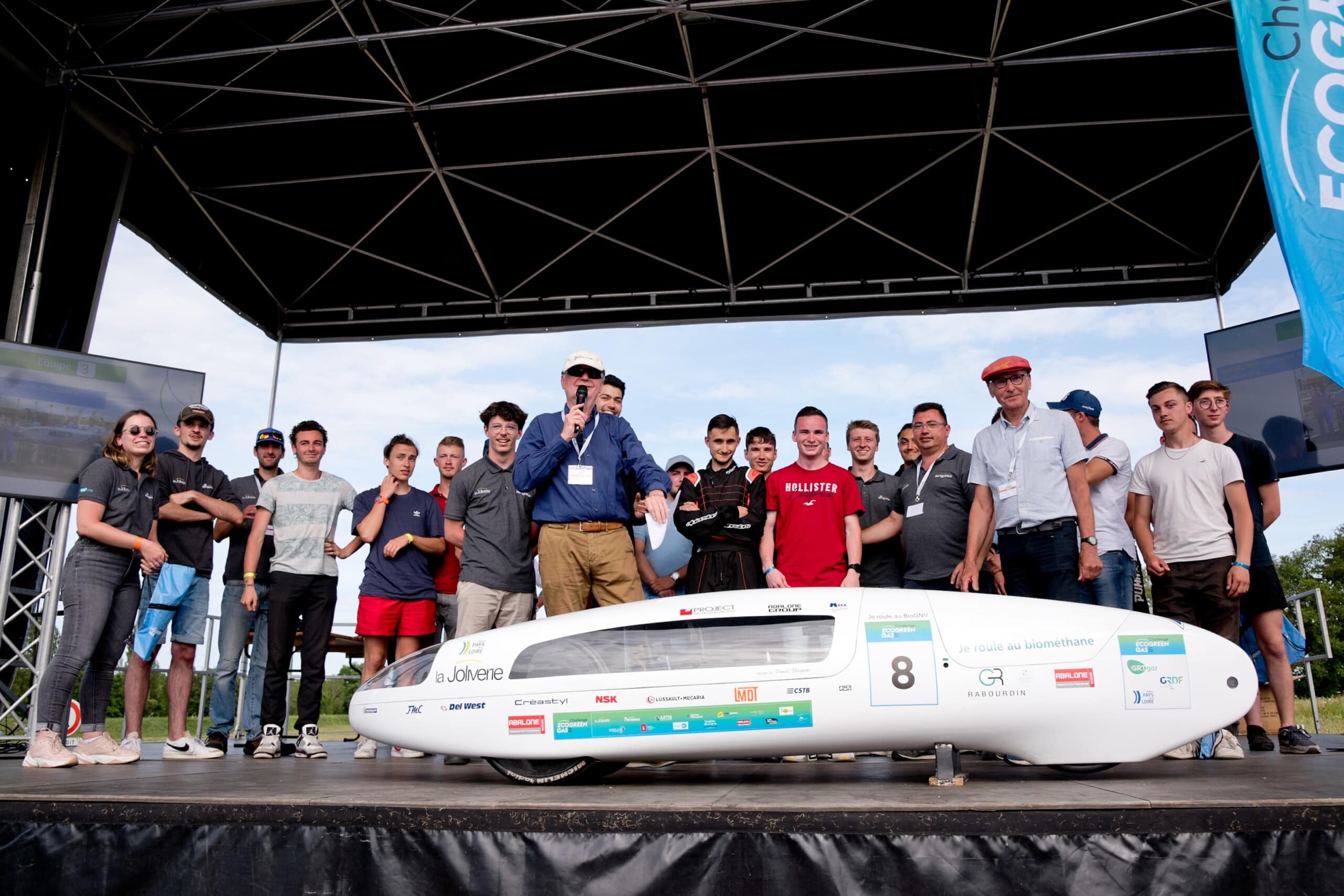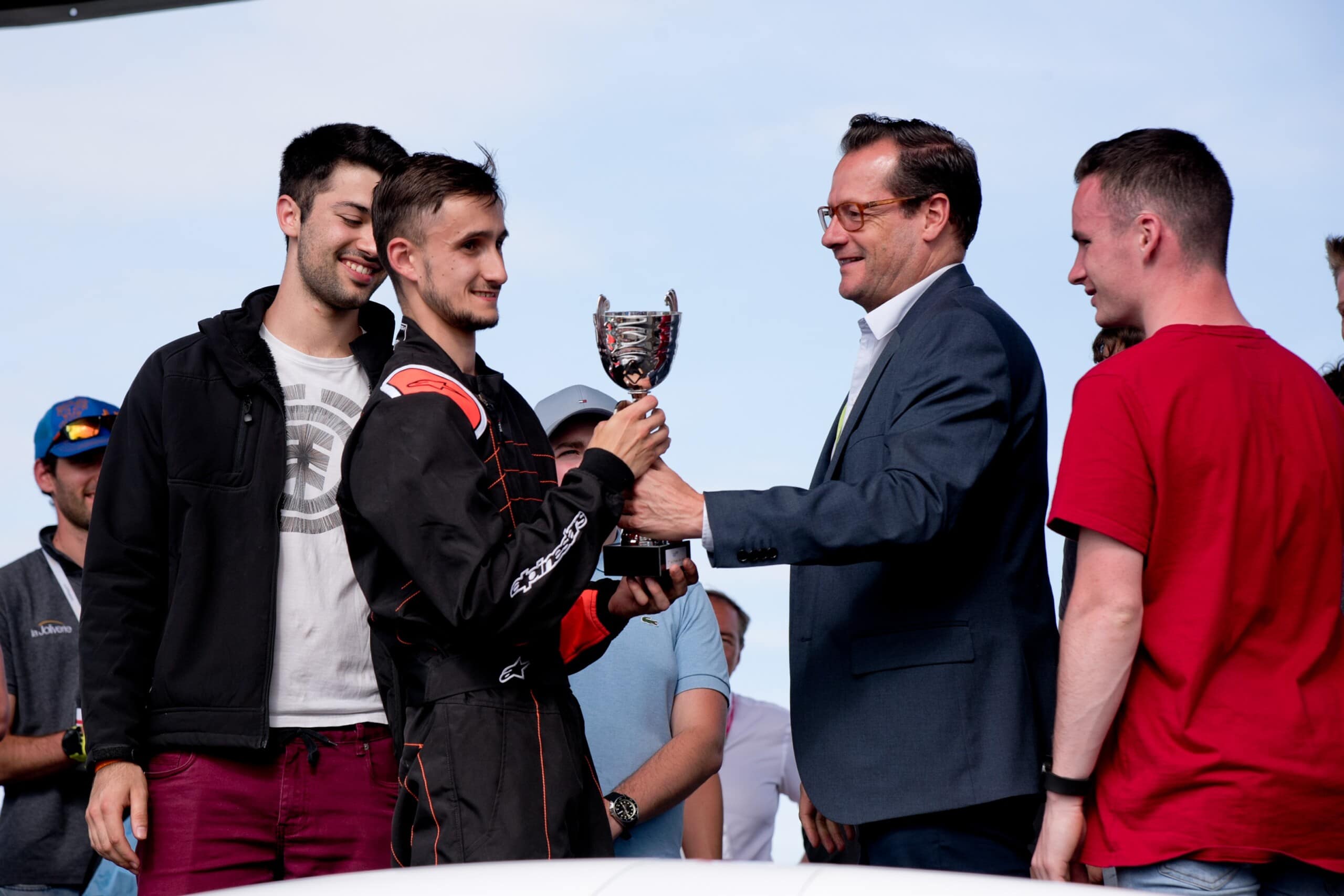Portal for more climate-friendly mobility
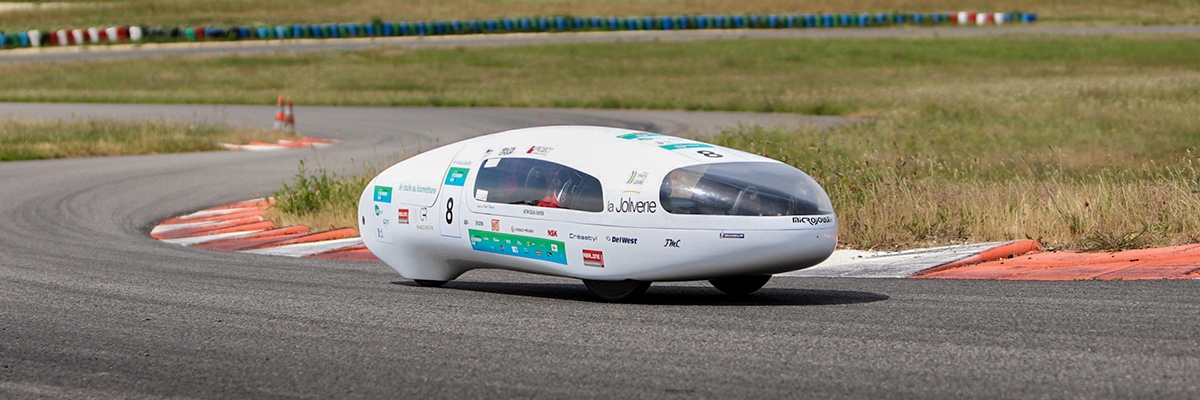
New world record for biogas: 2,934 km
Efficiency races have been around for a long time, but now a biogas prototype has clearly demonstrated the efficiency of combustion engines powered by sustainable fuel at the 2022 EcoGreen Gas Challenge. With just 0.57 kilos of biogas on board, the streamlined CNG racer managed a distance of almost 3,000 kilometres – a world record!
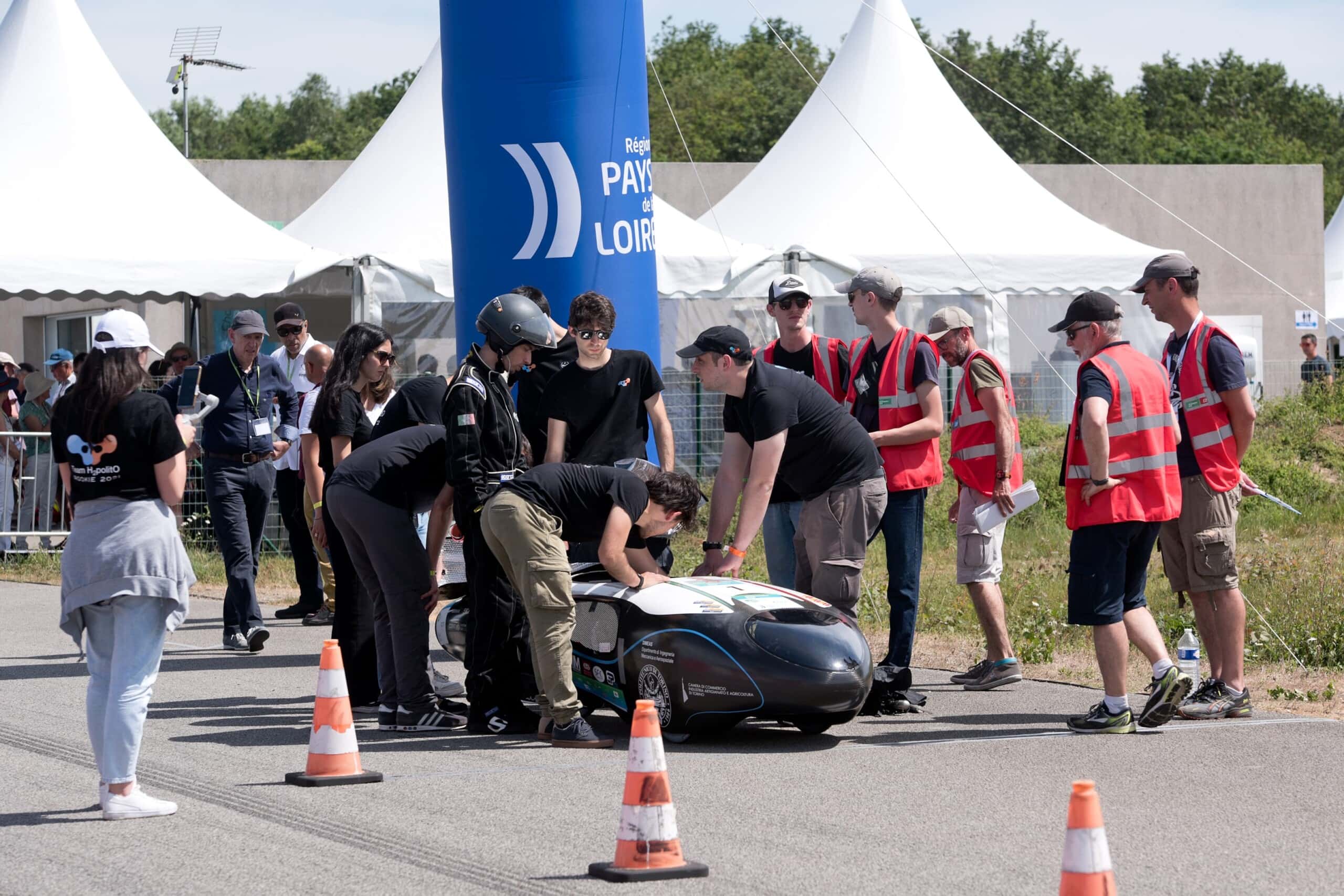 Start preparations for the efficiency race. Source: La Jol’toujours/Espace Photo Lollier
Start preparations for the efficiency race. Source: La Jol’toujours/Espace Photo Lollier
The idea for the first efficiency race emerged as early as 1939 in an American Shell research laboratory. The scientists had a bet among themselves as to who would be able to cover the longest distance with one gallon – the equivalent of 4.546 litres – of fuel. This idea was taken up again in 1976 following the first major oil crisis, which caused fuel prices to soar worldwide. With the PAC-Car II, a joint project between ETH Zurich and partners from science and industry, even a Swiss vehicle once set a fairy-tale world record. Developed under ETH professor, Lino Guzzella, the hydrogen-powered prototype achieved fuel consumption of 5,385 km/l gasoline gallon equivalent (GGE) at the Shell Eco-marathon in Ladoux (France) in 2005.
Following a break due to the pandemic, the “EcoGreen Gas Challenge” efficiency race has now been held for the first time on the circuit of Loire-Atlantique in Fay-de-Bretagne (France). Vehicles with CNG or hydrogen engines were allowed to take part in 2022. The prototypes designed, built and driven by students had to cover a distance of 20 kilometres with a minimum average speed of 25 km/h and consume as little fuel as possible – no matter whether biogas or green hydrogen was used as fuel.
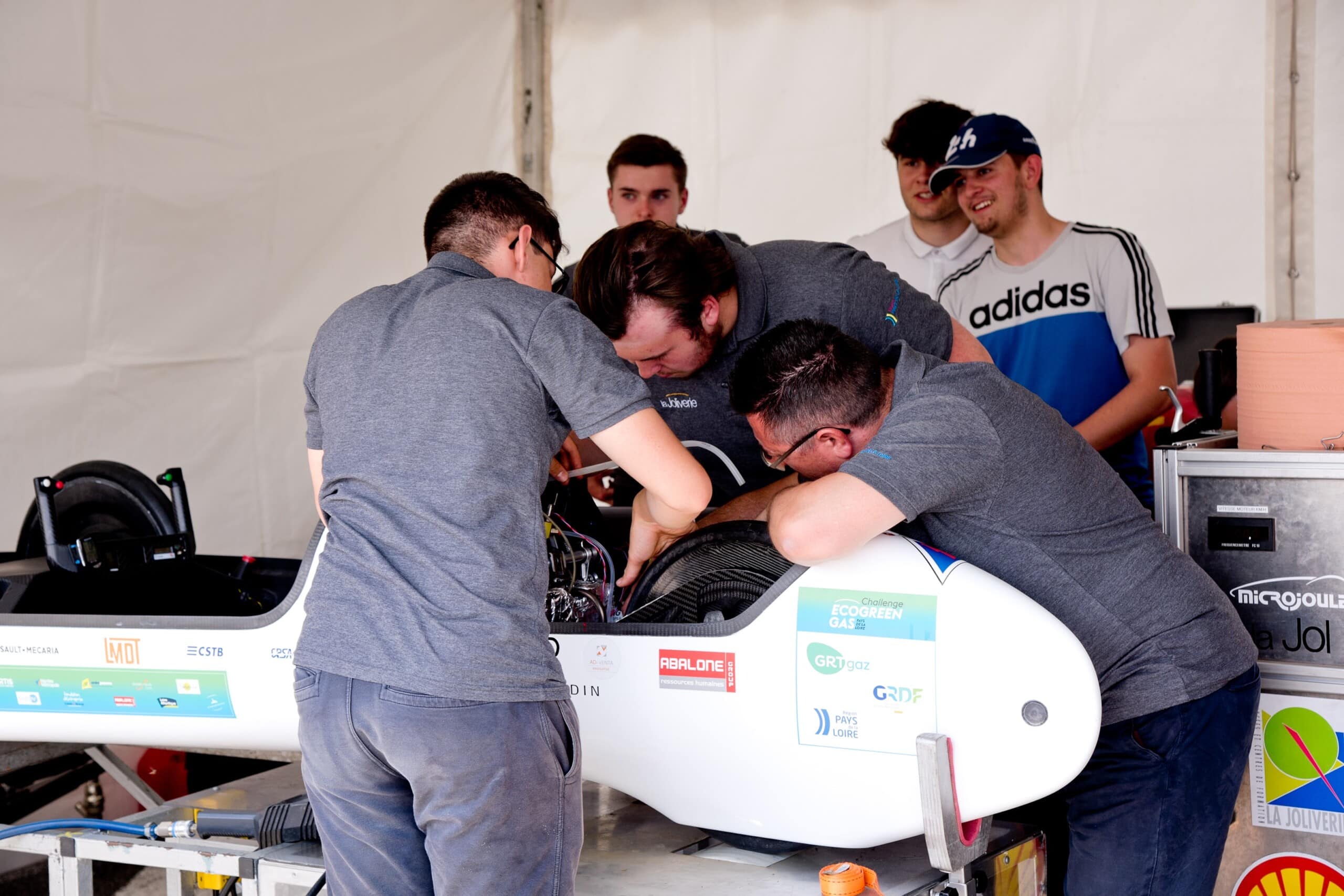 The last details of the race were optimized on the second circuit in Fay-de-Bretagne (F). Source: La Jol’toujours/Espace Photo Lollier
The last details of the race were optimized on the second circuit in Fay-de-Bretagne (F). Source: La Jol’toujours/Espace Photo Lollier
“The pilot produces four times as much CO2 as the biogas-powered vehicle,” explains Philippe Maindru, co-organiser and head of the EcoGreen Gas Challenge. He added: “If we really want to drive forward the reduction of CO2 emissions in cars, developers should take a look at our vehicles. They are very light, small and have highly efficient combustion engines. Unfortunately, the development of production models – especially in the case of heavy-duty SUVs – is moving in exactly the opposite direction.”
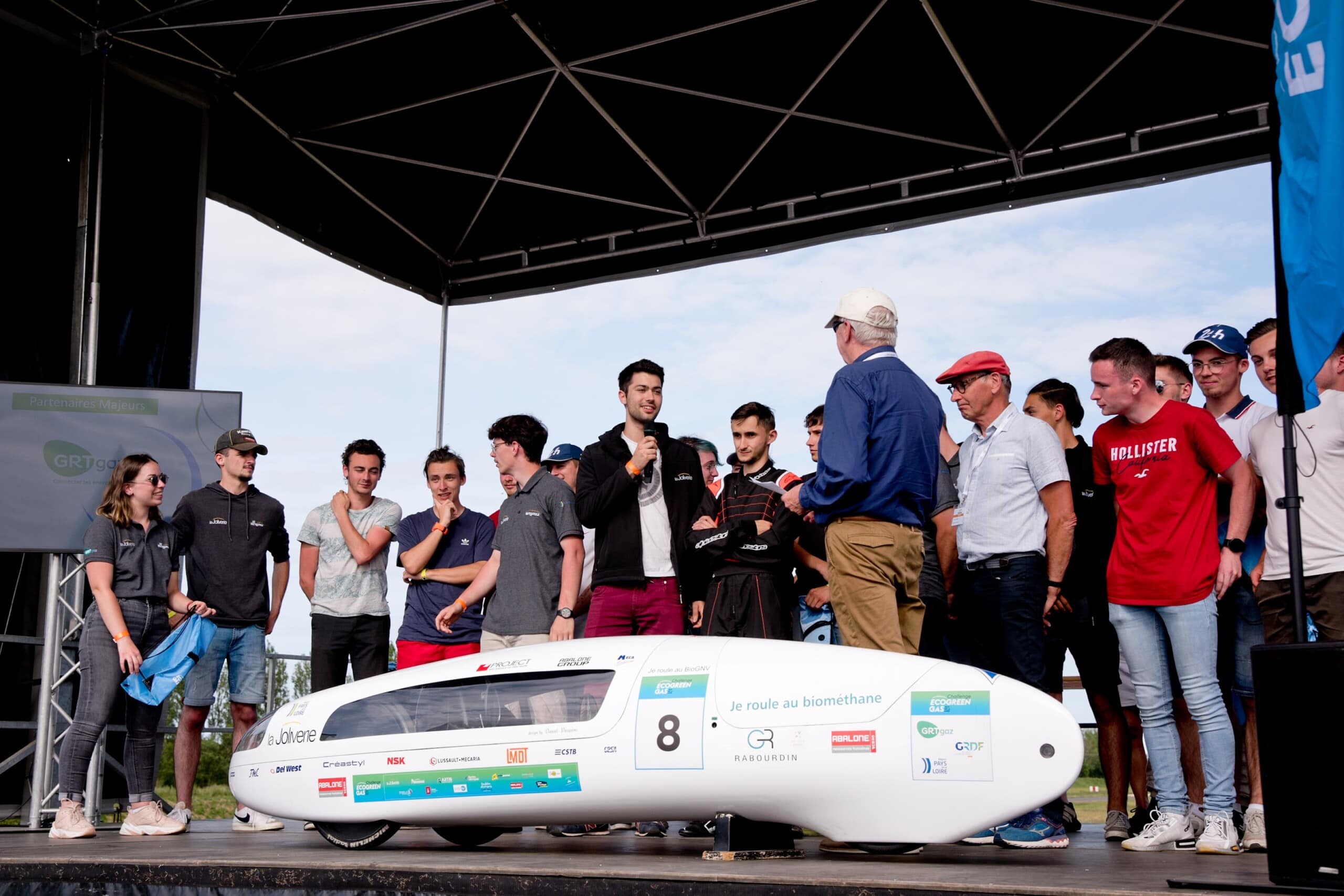 The biogas prototype impressively underlined the efficiency of combustion engines with sustainable fuel in the tank with its new world record of 2934 km/l GGE. Source: La Jol’toujours/Espace Photo Lollier
The biogas prototype impressively underlined the efficiency of combustion engines with sustainable fuel in the tank with its new world record of 2934 km/l GGE. Source: La Jol’toujours/Espace Photo Lollier
Before the event, the world record for biogas prototypes to be broken was 2,126 kilometres from a biogas volume equivalent to the calorific value of one litre of petrol or the equivalent of 32 megajoules (MJ). As the gasoline gallon equivalent (GGE)of one kilo of CNG corresponds to around 1.47 litres of petrol, the streamlined CNG racer needed only 0.57 kilos of biogas for the route at that time – an impressive feat! And yet the students managed to smash this record in 2022! Developed by the Lycée de la Joliverie in Saint-Sébastien-sur-Loire, the “MicroJoule 5”, which is two metres long and only 60 centimetres wide, fully geared towards streamlined performance and lightweight design, bet the previous record by almost 40%. At 2,934 kilometres, the equivalent of around 0.57 kilos of biogas, it also only very narrowly failed to achieve the 3,000-kilometre range. (pd/jas, 7 June 2022)
Source: La Jol’toujours/Espace Photo Lollier
You might also be interested in
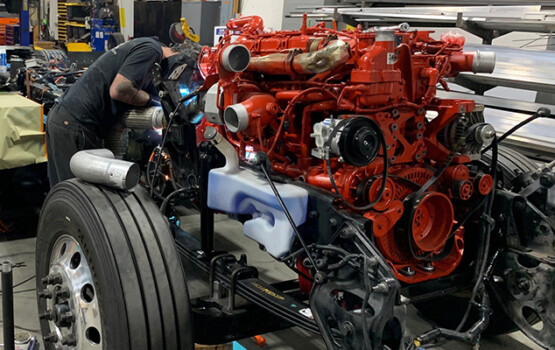
Operation on the open CNG heart


